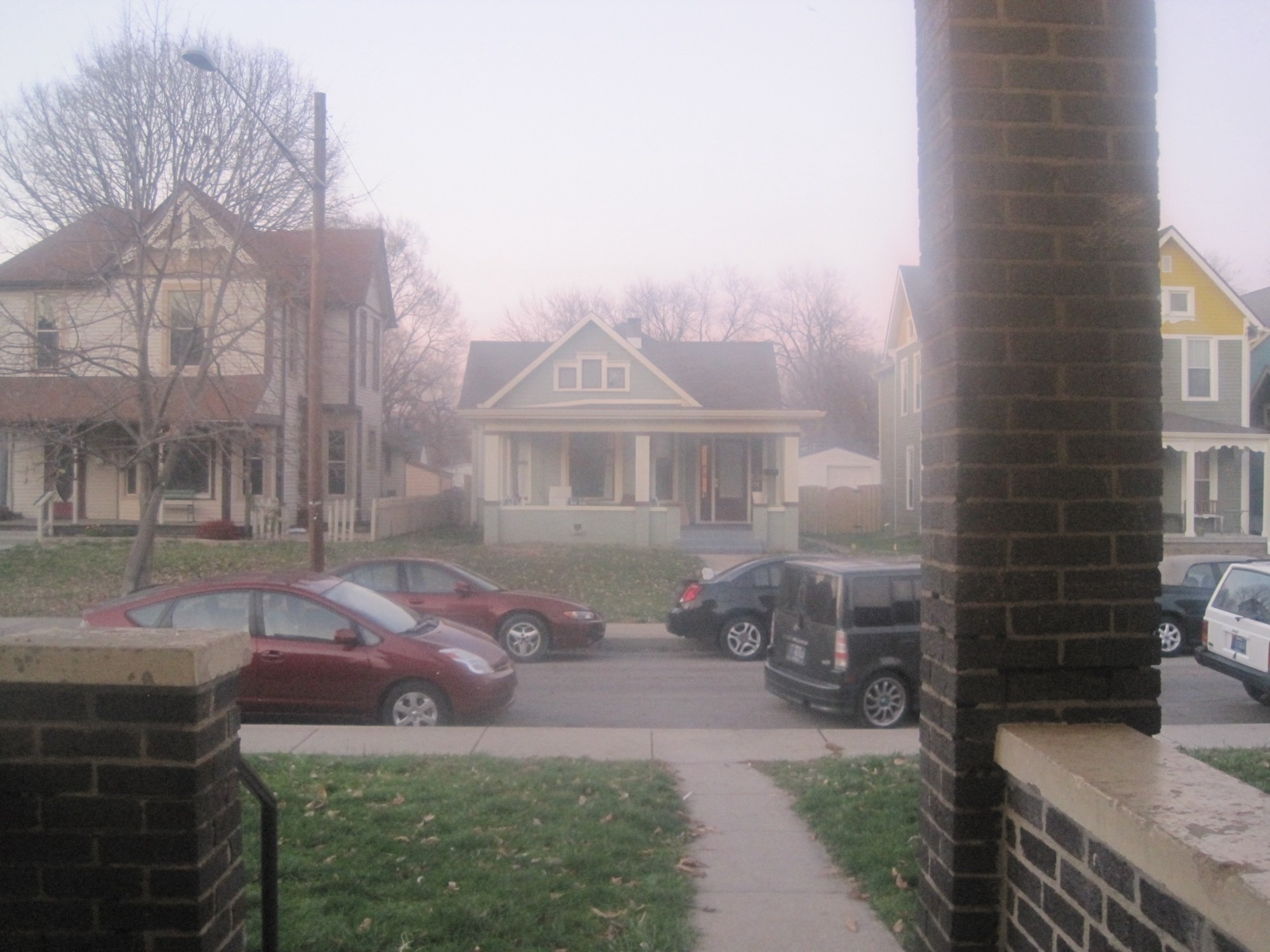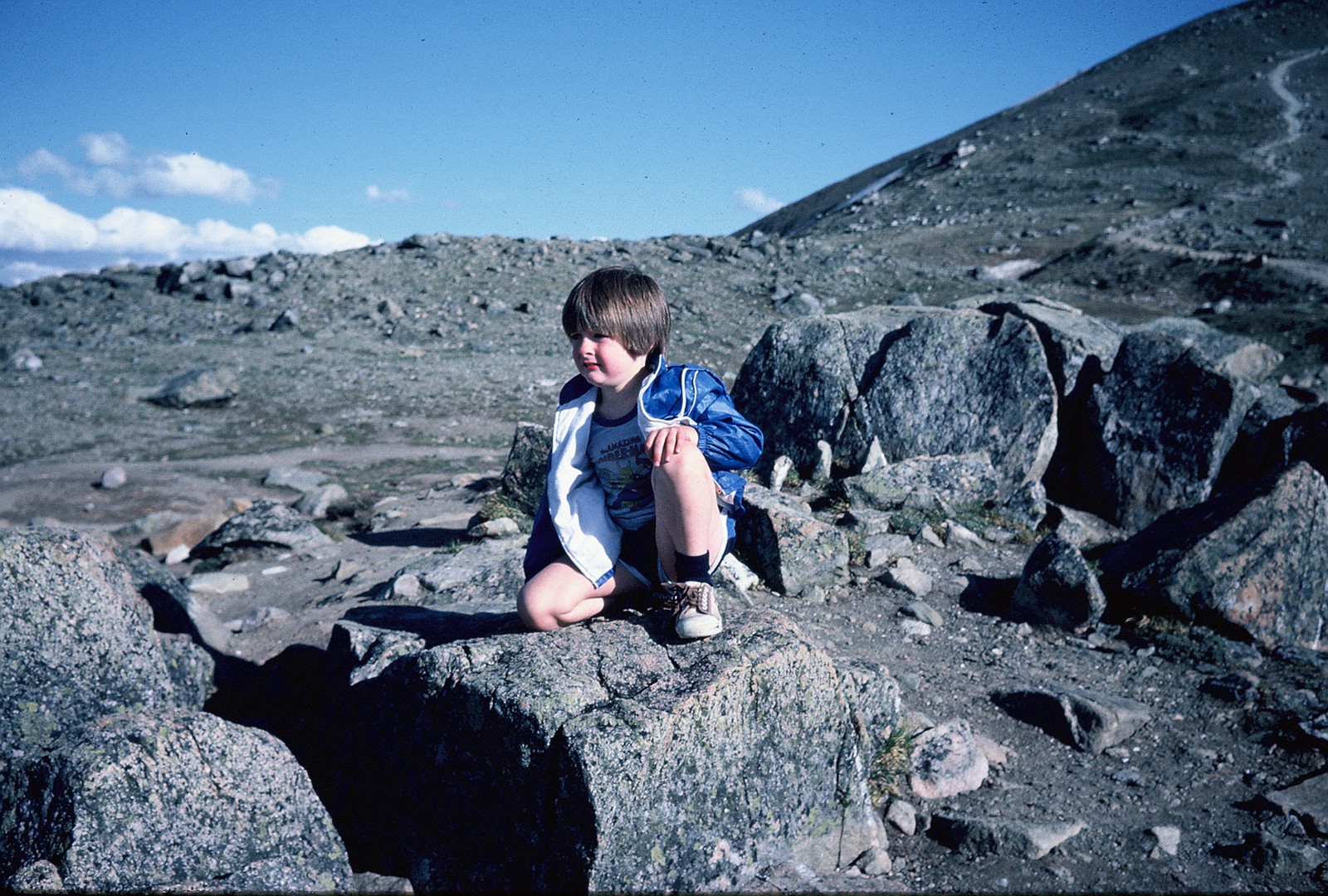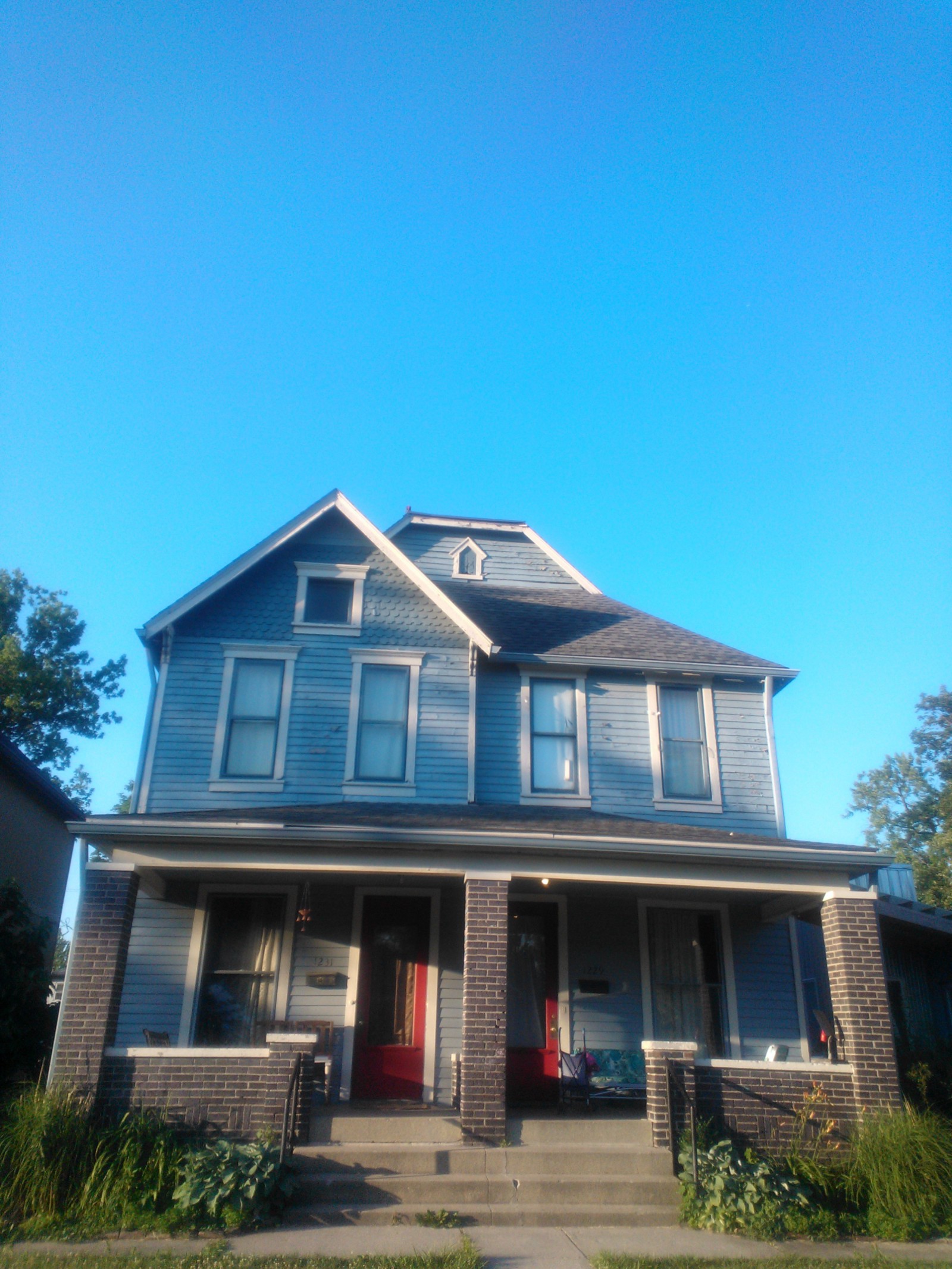January 9, 2019
writing
Originally posted on the Very Dad Movies Medium page here. Please listen to the podcast episode here.
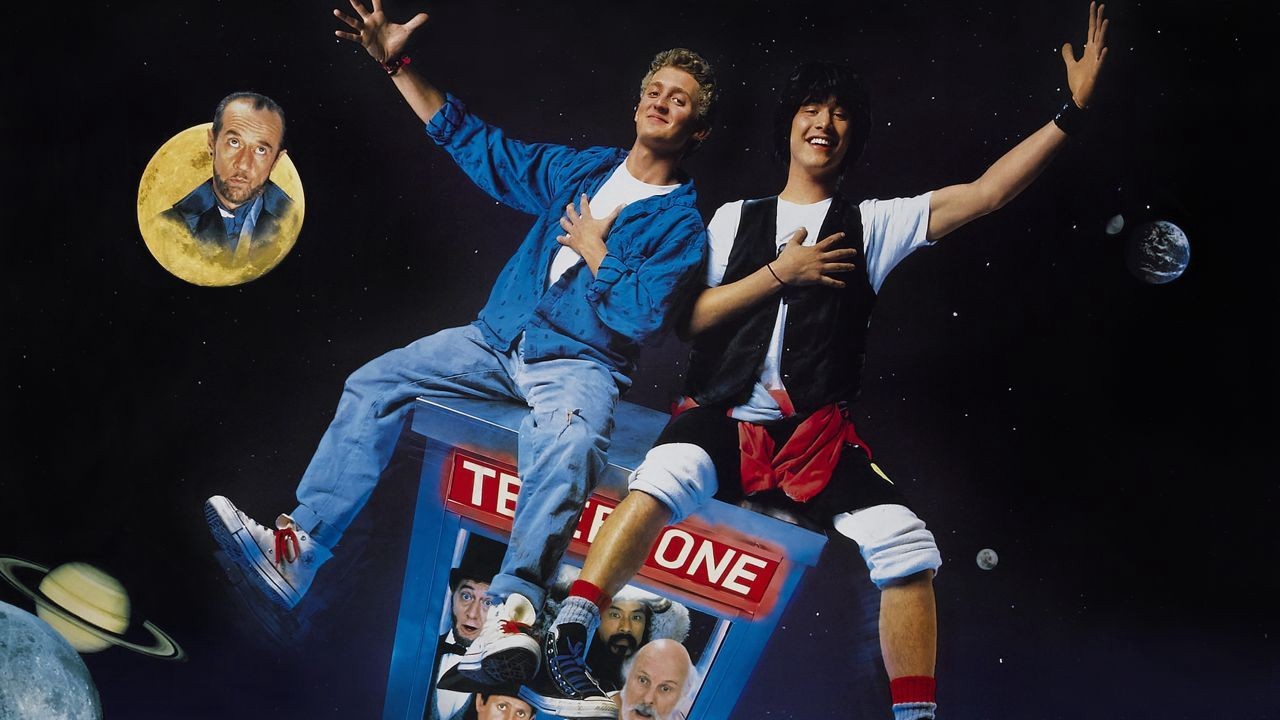
One of the best TV shows these days is Mr. Robot, and last season was one of its best.
To me, the best episode of that season was episode 8 (titled “eps3.7_dont-delete-me.ko”), which has a great scene where Elliot, the show’s protagonist, visits his love interest and childhood best friend Angela.
(Spoiler alerts for Mr. Robot and Bill & Ted’s Excellent Adventure are to follow.)
The shit has hit the fan. The world of Mr. Robot is falling apart in slow motion, and Elliot and Angela have a lot to do with it.
The episode begins with Elliot trying to kill himself by swallowing a bag of morphine. But this episode isn’t about Elliot killing himself; it’s about his journey back from the edge. Elliot’s suicide attempt is interrupted by a 10-year-old boy named Mohammed, and most of the episode follows the time they share together.
One of my favorite movies is Bill & Ted’s Excellent Adventure. Here’s how my favorite scene goes down: Due to a misdial and a broken wibbly-wobbly antenna thingy, the time-traveling phone booth accidentally drops Bill, Ted, and the historical figures they’ve collected in the future.
Bill and Ted walk slowly out of the phone booth into a crystal, futuristic-looking room, while Socrates and Billy the Kid (two of the historical figures) peer out through the windows. It feels solemn. Guitar solos are whining in the background, a keyboard synth strikes up.
“They sure do play excellent music,” says Bill.
“Most outstanding,” says Ted.
They stand before three people — some sort of future council — floating in midair. In awe and surprise the future council takes off their future sunglasses.
“It’s you,” says the highest floating guy.
“Yeah! It’s us!” Ted responds, matter-of-factly. “Who are we?” He asks Bill in a quiet aside.
The future council strums an air guitar, and Bill and Ted do the same. More people start to walk out from hidden chambers, and it becomes clear that everyone is anticipating a speech.
The music playing in the background at this moment (“In Time” by Robbie Robb) crescendos: “Our dreams will all come true, I promise you, because I can see for miles!” Robb sings. “In time, we’ll be dancing in the streets all night. In time, yes, everything will be alright!”
“What should I say?” Bill asks.
“Make something up,” says Ted.
“Be excellent to each other!” Bill declares.
The crowd nods.
“Party on dudes!” Ted exclaims.
Then Bill and Ted set off again, this moment having a quiet impact on these two shapers of the future.
“Later,” Bill and Ted say together.
“Later,” echoes everyone in the future.
There’s a popular theory that time travel is part of Mr. Robot’s plot. It’s a viable theory. Many of the characters reference a parallel universe or some form of time travel. And the show’s writers have nodded to Back to the Futurein many episodes. Season 3, episode 8 (“eps3.7_dont-delete-me.ko”) is one of them.
Elliot takes Mohammed, the boy who unknowingly interrupted his suicide, to see Back to the Future II because it’s “Back to the Future Day” in the show’s universe. October 21st, 2015. The day when Marty McFly and Doc Brown travel to the future. Everyone waiting in line to see the film is arguing about its meaning. After some back and forth, someone in the crowd provides the best answer: “It’s about how one mistake can change the world.”
When the movie’s over, Elliot goes to Mohammed’s mosque to pray with him. Then they go home.
“Elliot? Will I see you again?” Mohammed asks.
Mohammed thinks he’s asking a simple question, but for Elliot it’s existential. The kid offers Elliot a lollipop “because you said you were sick.” This simple question and gift stop Elliot from deleting himself.
But the episode isn’t over yet.
Elliot goes to see his childhood friend Angela, something he’s been avoiding. The scene is beautifully shot, cut down the center by a closed door that separates them. The two lean against it, lean against each other in a way, and Elliot just talks.
And then the song “In Time” by Robbie Robb (perhaps you remember it from the future scene in Bill & Ted) begins to play.
I had been able to hold back tears until that moment.
Thinking back on it now, I’m not sure why I cried. It was a combination of things. The song “In Time” has aged well. It’s a good song. And that scene in Mr. Robot is powerful.
But I cried because I realized that someone else, not just me, had felt the frisson of the future scene in Bill & Ted. It was like someone working on Mr. Robot had reached out into the universe of popular culture to find something specific to me.
Maybe it was Sam Esmail, the creator of the show, who decided that “In Time” should play at the end of the episode. Maybe it was a random music supervisor. It could have been a passing suggestion from an intern. Who knows? But someone out there in the universe feels the same way I do about the future scene in Bill & Ted, and they chose to use the song that plays in that scene to make a statement in an episode of Mr. Robot.
Both these scenes are about making a choice, a choice toward destined optimism. It’s a choice against the temporal mechanics we see in Back to the Future II, where one mistake changes the world for the worst. Bill & Ted and Mr. Robot are about choosing a reality where things. just. work. out.
I cried because it’s the choice I want to make. For me, for my daughters, for the world. A decision for the kind of destiny where things just work out because they were always destined to work out, kind of like Bill and Ted’s history report.
In this very particular moment, the optimism we see in Bill & Ted is what we need most.
Bill and Ted have a kind of Obama/MLK-esque perspective of time and history. They believe that progress happens, that history bends toward justice despite bad actors.
What is the opposite of dystopia where things always end in decay? What do you call a fated, inevitable paradise? Where everyone and everything is fixed? Utopia? Why doesn’t utopia sound as fated as dystopia?
What is the opposite of fatalism? What do you call a universe where entropy is undone, and chaos subsides into order and peace?
The answer is in Bill & Ted. The whole point of the future scene is that “everything will be alright”even if it will “take time.”
Bill & Ted’s Excellent Adventure is about reaching a future that works for everyone. Where the “planets are in alignment” as Rufus, played by the late George Carlin, tells Bill and Ted.
I choose to reject the idea that “one mistake can change reality.” I believe in a reality where the phrases, “Be excellent to each other” and “Party on” have a profound meaning. And I believe in a reality where the repetition of these words doesn’t diminish their meaning but strengthens it.
Be excellent to each other.
Party on, dudes.
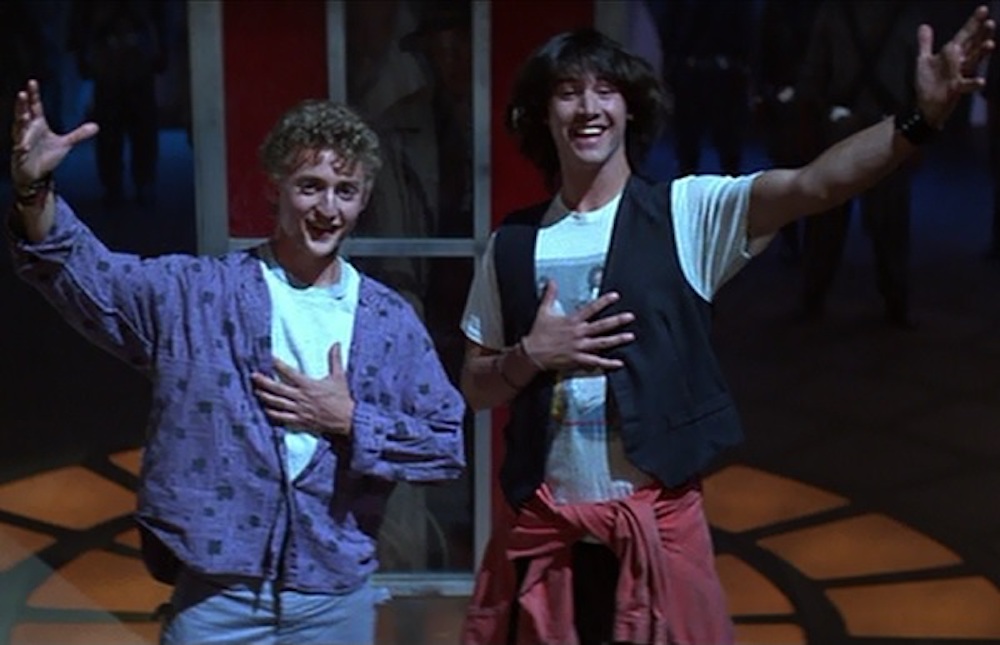
December 7, 2018
writing
We are standing in the middle of a broad, long beach. The water is as flat as the beach and beyond, sky; shades of the same color. Ground, water, sky; it all blends together.
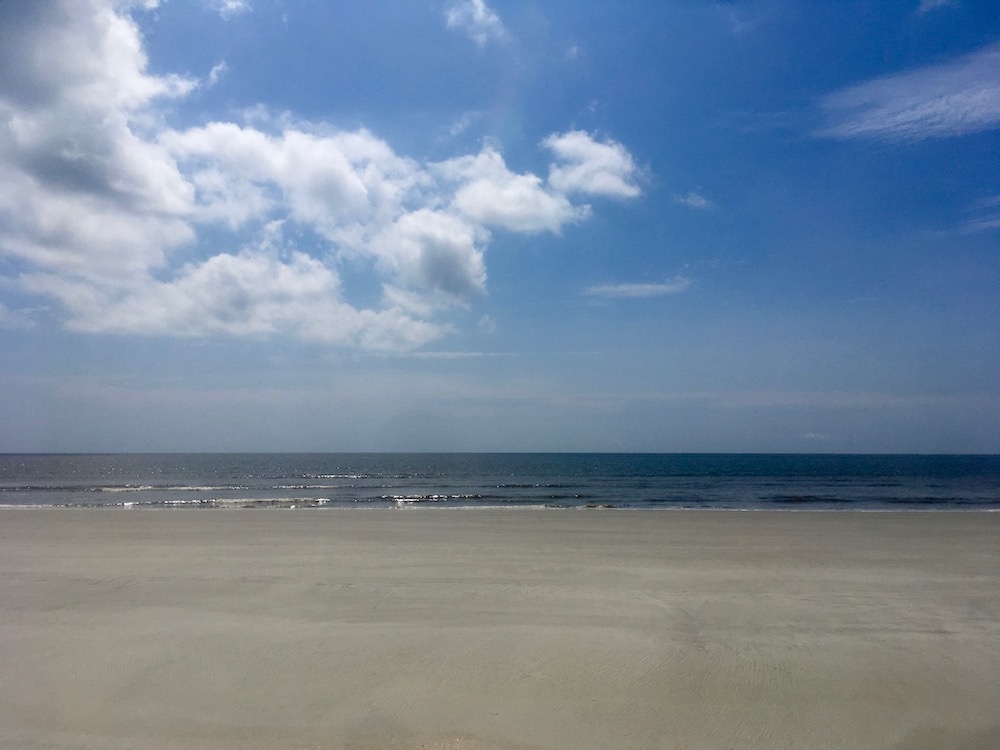
My twelve-year old daughter is staring up, her neck cranked upwards.
“It’s so,” she says, pausing for a moment to consider the best word, “big.” The wind tousles our hair like a dad walking by. My daughter looks at me, amazement flaring in her eyes. “We are so small,” she says.
I nod. I smile back. I agree. She is having the best kind of epiphany: the obvious kind.
I grew up far from any ocean beaches, but as a Canadian the feeling of being small is familiar. I spent months of every summer vacation camping in the shadow of the towering, ancient Rocky Mountains. When you encounter something big and old like the Rockies, you’re reminded in every moment of your newness and smallness.
But here on this white sand, it’s a different kind of feeling small than in the mountains. In the mountains, I am dwarfed, all the time. It is quiet in the Mountains, quieter than other places, because unless you are at a rushing river or a waterfall, or unless the wind is strong enough to push the trees, the higher air pressure dampens all sound. Being in the Canadian Rockies is like always wearing earmuffs. Everything is subdued. Noise just drops off. And anything smaller than you is only barely smaller than you when compared to the epic size of the mountains. You are part of everything because you are small, all of it in the shadow of the mountains.
But here on Sapelo, there are many things that are noticeably smaller than us. The little white bugs who skeet across the surface that we can never catch. The bazillions of mosquitoes and sand flies that remind us of their smaller but painfully annoying existence with every bite and draw of blood. The dancing, skittling fiddler crabs en masse, who look like a big quiet something until you approach, and then the whole rock or tree or patch moves in concert. The thousands of tiny fish of all kinds that bounce off your feet in the low-tide micro tributaries, as it’s a crowded New York subway station and you’re the idiot deciding to suddenly stop. The blue crabs, whose snapping come-at-me-bro attitude works for a time until they decide enough’s enough and that sinking into the sand and ignoring it all is probably the best approach to get through it all. Or the ineptly named horse-shoe crabs who look alien and terrifying, but are actually benign and gentle, and who we all feel sorry for later when we read that we are the aliens, because just up the coast in Charleston we humans abduct these ancient creatures, systematically drain 30% of their blood in sterilized laboratories, and toss them back as if nothing ever happened, thank you very much.
When my daughter says that we’re small, what I think she means, or at least what I feel that she means here on Sapelo, is that being on Sapelo is just another part of being life in a vast intricate system of life. In the Rockies, you are small because something is big. Here we are small because there are so many small things of which we are only a part, each small thing intersecting with the other in very obvious and in many less obvious ways. Every moment on Sapelo is a meeting moment because Sapelo is a meeting place of many, many things.
It’s easy to look at any beach and say that it’ a meeting of two things, because that’s what is: water, land. But Sapelo is even more so a meeting place, of so many things. It is an intersection of manifold natural systems, all of them compounded upon the other. Sapelo, for example, is where salt-water animals will swim in, birth, and then raise and nurse their young in the moderated freshwater on the west side of the island, amongst marches that filter out the salt. Their young grow, then migrate into the seawater.
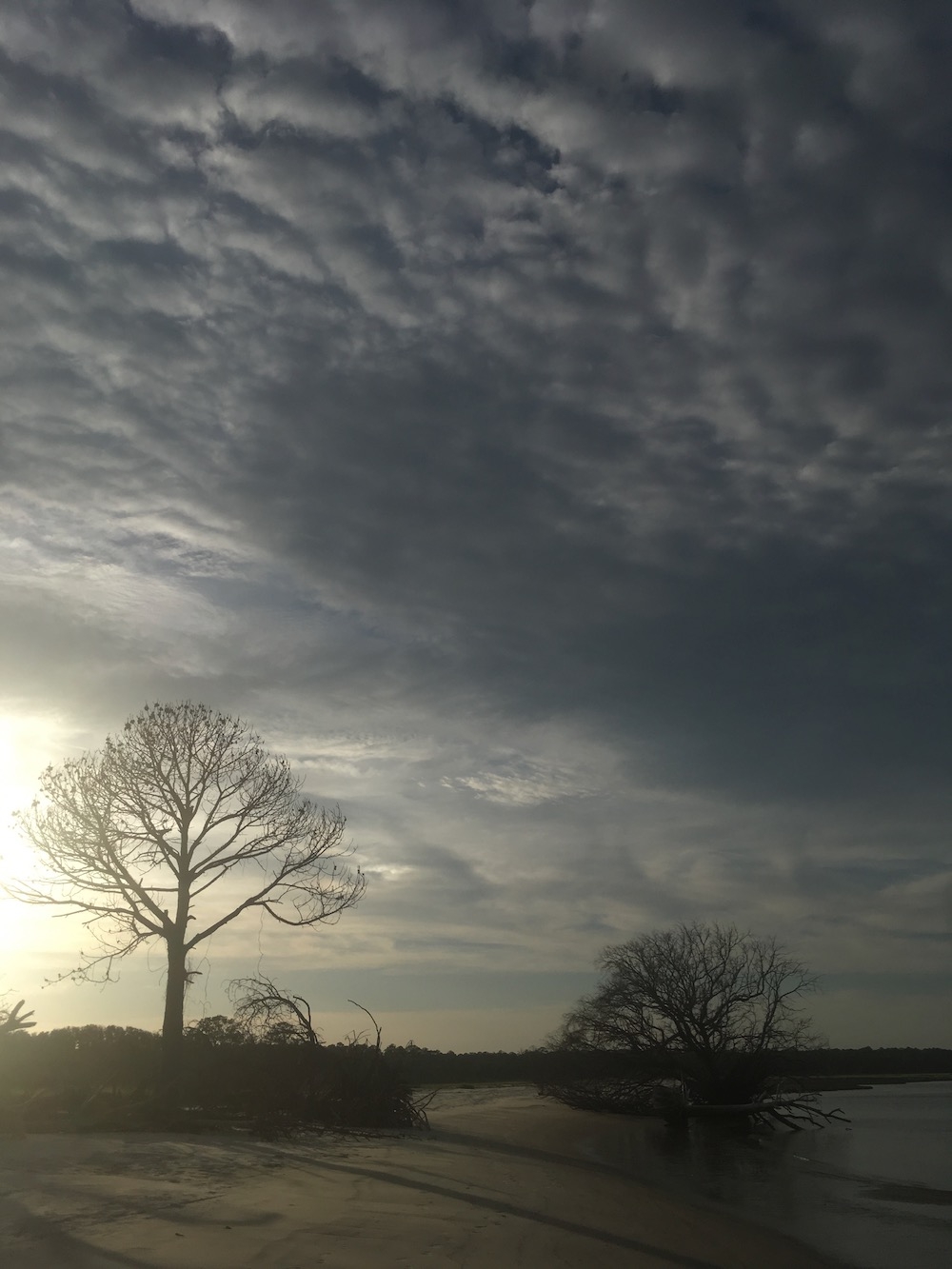
Sapelo is a place of spiritual intersection too, a place to feel God, because God is the Creator, and God created and creates Life, and Sapelo courses and bursts with life upon life, systems of life upon systems of life, systems upon systems.
With all of this life, with God so present, I feel helpless at Sapelo, though I don’t think much of it, because there’s so much to see and do. But if I stop and face into that feeling, I look down the horizon of the ocean, say, or the long stretch of beach, I am reminded that I am myself playing a role in a large system playing itself out. Everything big and small with and in a place and given a direction.
Sapelo is an old island, but, in the way that it has contained natural systems, Sapelo has similarly contained manifold human natural systems. White people enslaved and trafficked Africans to Sapelo many years ago, and while the ancestors of those white owners of human beings long since moved away, the ancestors of the enslaved remain, at least for now. Those systems persist, especially in places like Sapelo, and even though slavery as an active system is gone, the system’s legacy remains. There are now only some 50 ancestors still living on the island. The system of white supremacy has, piece by piece over time, deconstructed the infrastructure, education, business and homes of the ancestors of people who were forced to live on Sapelo against their will a long time ago.
And here we sit on the beach, five white folk, five Beeler, staring at the sky, feeling small, perhaps on the same beach that those Africans set foot on hundreds of years ago, us here at will, them against it, and at loss of of great life.
And here I am now, writing this. So, what role am I playing here, miles away in Atlanta Georgia, by writing this now? What system is at play, now? This sounds like an existential question. It is, but it’s not the kind that seems debatable in a grad school classroom. That extistentialness feels urgent, imminent when I think of Sapelo. When I stare at the sky and the water and the land of Sapelo, I wonder what choice do I have, if only to write?
I think about the enslaved that lived on Sapelo, and their great great great grand sons and daughters who live on Sapelo now. I think about how we stopped to offer one of these grand sons a ride home. “I like riding on my bike,” he said, friendly, but I read into it as a way to say, “I don’t really need you, thank you” and I agree with him both in the obviousness of the moment, and in my navel-gazing reading-into-it-ness, and we drove on.
I think about the conversation in the only store on the island, where I overheard a white woman phoning her friend to tell her that land is cheap on Sapelo, and there’s a property she should buy, and if she did, they’d then be neighbors. Though I definitely silently judge that woman, on the way back to Atlanta, my wife and I even discuss how we could live at Sapelo, buy a home for the summer, visit, live here. How easy it would be.
I think about the Sapelo fish fry we happened upon, and a white fisherman who was wearing a red MAGA-esque Brian Kemp hat, who kept making Trump jokes without recourse, because, I guess, he could, even though Sapelo residents rolled their eyes behind his back. There it is, isn’t it: systems upon systems, one of which is the privilege of my kind, of white men, to both tell and laugh at ones’ own jokes.
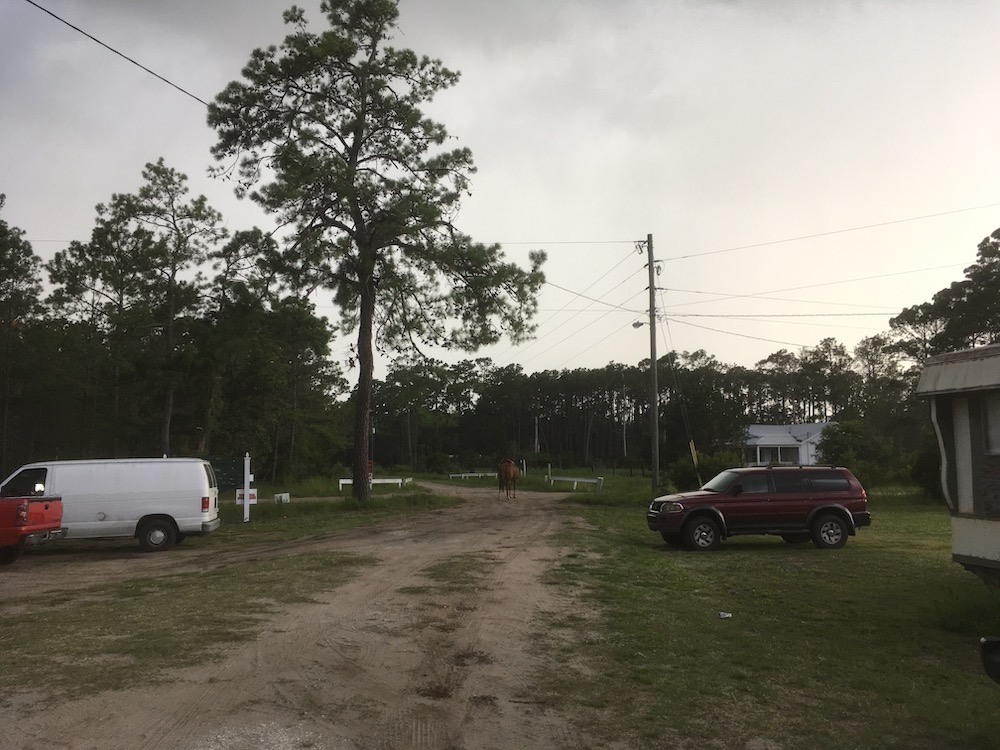
And thinking on all these things, all of which feel like the movements of great and great meaning of which is longstanding, these deep-wrought things, all these things that are working and at work, it holds down my spirit into the sand, like I’m caught in the mud, like a little crab who wants to close his eyes and bury into the sand and hope it just goes away.
Being there felt like watching the end of an epoch. For example:
We arrived at the north beach one morning. It’s a kind ocean marsh cul-de-sac, teeming with life. Bursting with it. There is a pod of porpoises swimming lazily 50 feet away. Fish everywhere, flipping up out of the water like shimmers. On the sandy shores are horseshoe crabs, and crabs of all kinds. Seeing and feeling all this, and being the only humans around, is such a rare experience for me, because I am almost always in a situation where humans have control of it all (or at least as much control as we can, or we think).
We go walking and find some waves; something is waving back at us beyond the waves. A sting ray? A shark? A porpoise? Something else? We have no idea. It’s big.
On the shore there are giant, old trees that have come up from the water. They are whitened by sun, and all of this adds to the surreality of the place. Sapelo can feel like another planet. It feels sacred.
We wander south.
When we come back to the cul-de-sac, there are three cheap fishing boats in the water. People in the boats. Their laughs and the music blaring from their marine stereos rises above the quiet, overwhelming it. One of the people tosses a beer can into the water. I watch the white and red can bob for a bit then take on water and sink. I think about the horse shoe crabs and the porpoises and the stingray-whatever-it-is, and the enslaved and their descendants, the systems upon systems. I’m not naive enough to fully believe that our impact is any more or less than theirs, but the brazenness of it all awakens a silent and angry judgement. They are an easy target for my condescension. I want to swim over and punch the lights out of the person that threw the can overboard.
But I don’t. Instead, I continue to judge, quietly, inwardly, grumpily, as we move along the beach. I judge them. I judge myself. I am probably closest to the can-throwing-fisherman than anything else on Sapelo; everything else is foreign, to me. In fact, I am the foreigner here, the intruder, the colonizer. My feet sink into the white sand and I want my white body to follow, to disappear like a bobbing beer can taking on water.
But I don’t follow the sand crabs example and sink into the sand. I go home, or to at least what we’re calling home but is actually the Airbnb on Sapelo owned by other white people. It’s a sweltering afternoon so we stay inside. The kids watch home improvement shows on satellite TV and my wife naps. I start to write this here thing, thinking does it do anything at all to change the systems, and I realize I’m just that beer can in the water, bobbing until I sink.
I look outside, where it is hot, and just beyond the trees is that blue sky.
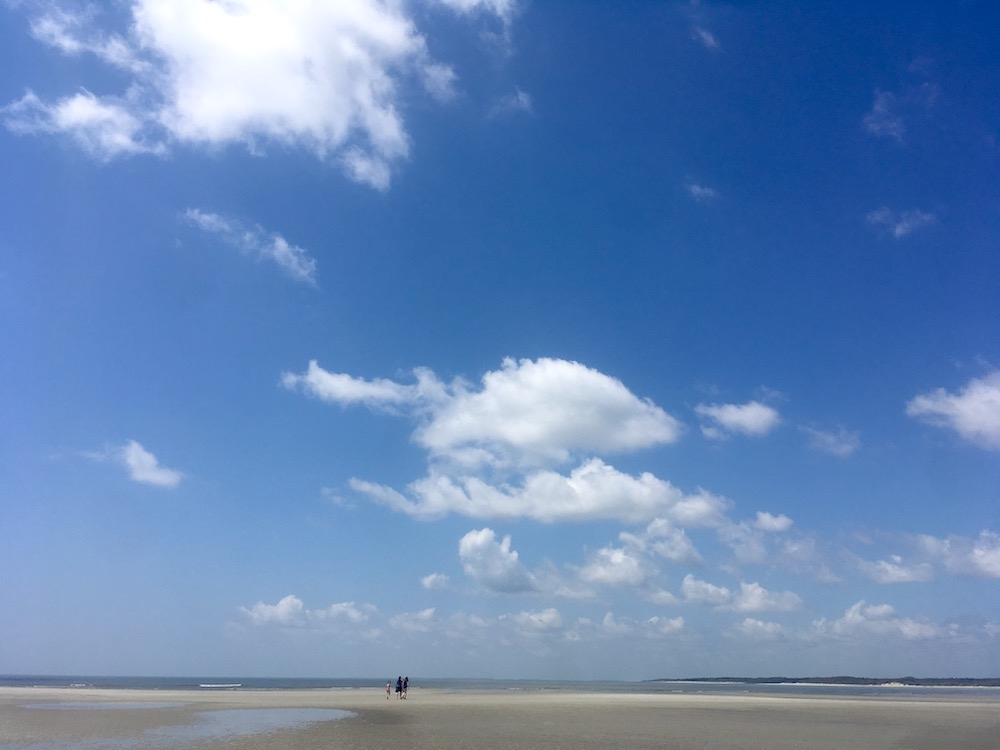
May 23, 2015
writing
Originally posted on Medium.com
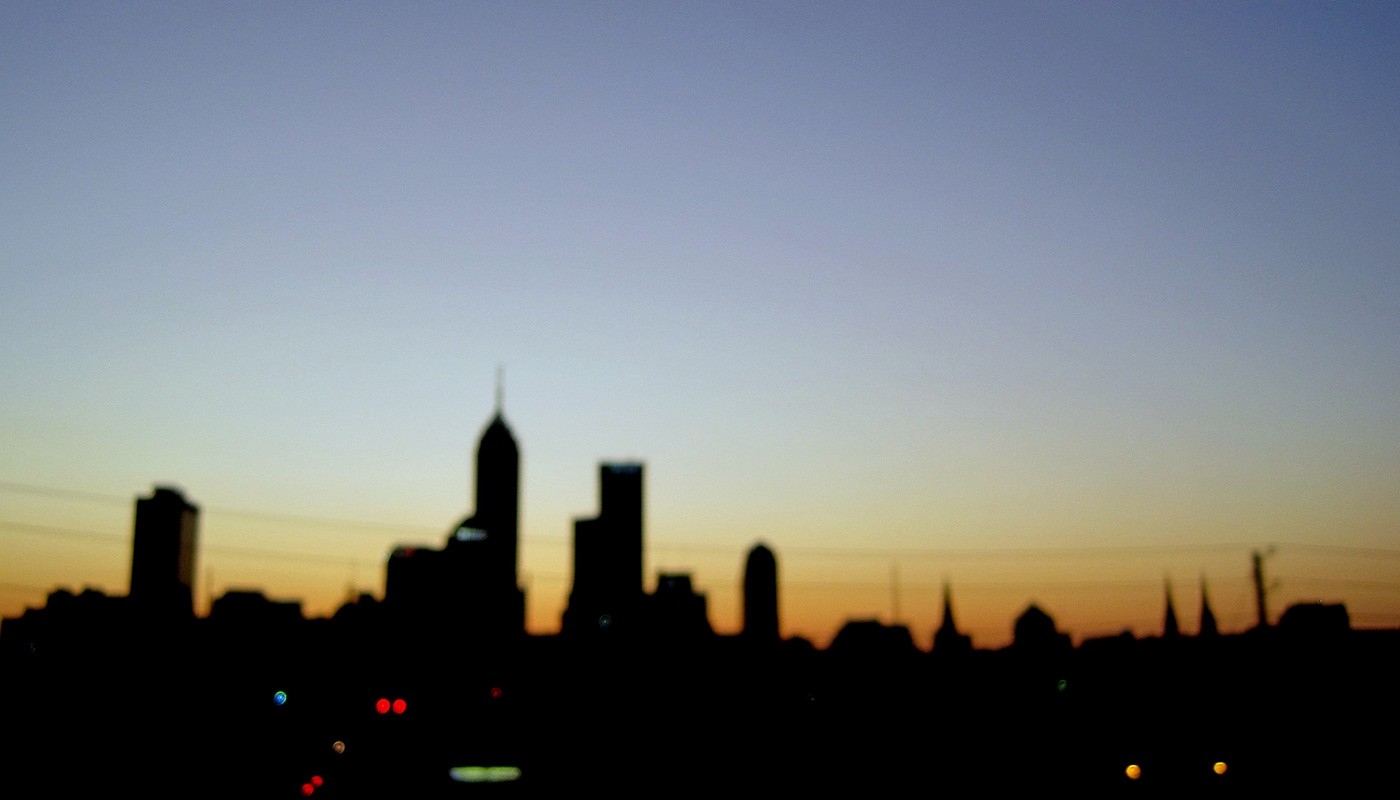
Indianapolis calls itself the Crossroads of America.
I can see that. I came here a little lost, stared at the signs for a bit, and now I’m a little less lost, a little more found.
So I guess it worked.
My parents moved to Indianapolis in early 2001. My wife, Tonya, and I drove up to see them one weekend, and it was the same weekend the city demolished Market Square Arena.
That was July 2001.
When the twin towers in New York fell three months later and that dark cloud of smoke consumed the camera, for a moment I thought it looked like the demolition of Market Square Arena.
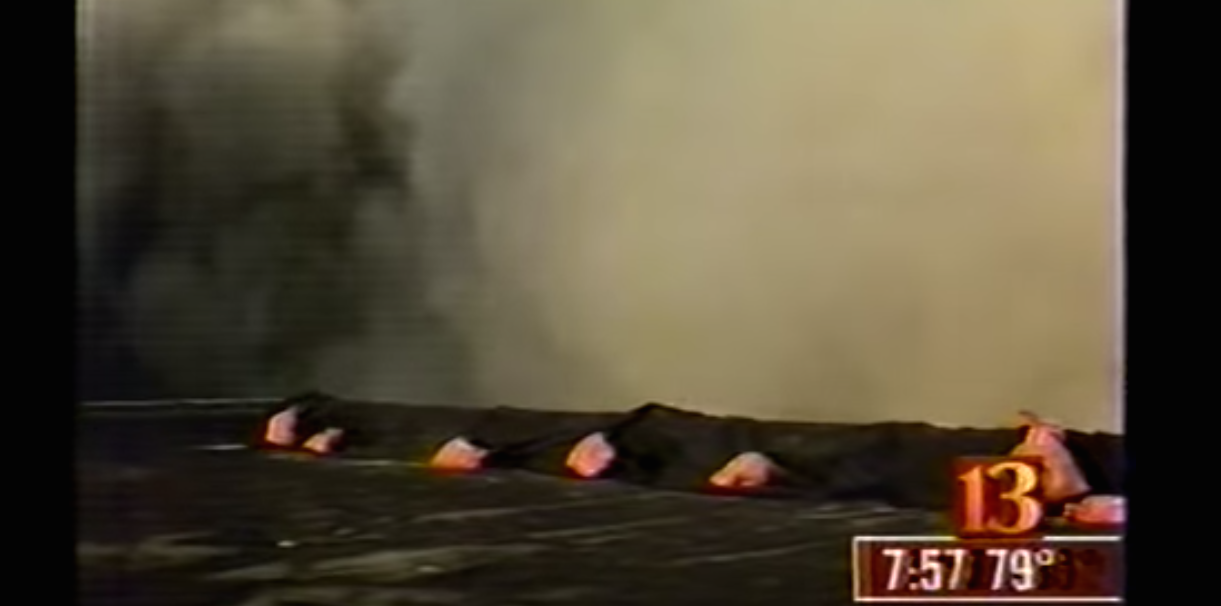
Indiana used to be the frontier before the frontier moved westward. Back then “Hoosier” was “who’s there?” a call from the safety of the cabin porch out into the unsafe dark.
Maybe that greeting was the start of so-called Hoosier Hospitality. Maybe there’s a connection between “who’s there?” and baking homemade sugar cookies for tourists during the Super Bowl. We’ve been good with people coming from out-there to in-here for a while.
We’re less good when folks go back out there. We take it personally. There’s a sense of good riddance, crossed arms, shrugged shoulders. Those that leave didn’t get it. They didn’t try hard enough, or long enough. They weren’t Hoosier enough.
I’m a Canadian, but I don’t think being a Hoosier is that far off from being a Canadian. Canadians and Hoosiers share a garrison mentality: it’s safe in here, but not out there. So why would anyone leave?
I came to Indianapolis to get a graduate degree in US History from IUPUI.
Not many people see Indianapolis as a historical city. Not in the same way we look at Philadelphia, or D.C., or New Orleans. It’s probably because Indianapolis doesn’t draw attention to itself. We don’t talk about ourselves. We’re the average. But there’s a certain shade to the history of this city. It’s a nuance, a dark shadow in the corner of your eye.
Sometimes the shadow is too dark. The KKK ruled here for a decade in the 1920s and that has done something to us that we mightn’t have accounted for. There’s all kinds of stories like that, buried beneath the veneer. But even stuff like that falls into the “let’s not talk about me” thing.
Robert Kennedy announced to a crowd in Indianapolis of mostly black people that Martin Luther King Jr. had been assassinated. Kennedy, speaking from a truck bed, started by asking the crowd to put the campaign signs down. They did, and you can hear a quiet fall over the crowd.
When Kennedy says “Martin Luther King was shot and killed tonight,” you can hear the crowd draw the night air into their lungs with a sharp gasp, as if they’d been themselves shot.
Kennedy waits, a precise ten seconds. Maybe he counted. When he speaks again, he mentions that it was a white man that killed Dr. King. And how a white man also killed his brother.
It is a haunting speech. One for the books.
Other cities burned that night. People who were there that night say that Indianapolis didn’t burn because Kennedy calmed the crowd.
I’m not so sure it’s that easy.
About a year after we moved in to our house on Pleasant Street, I was taking my usual 3am morning piss. I like to gaze out the bathroom window over the neighboring empty lots and derelict houses. In the alley I see a car, probably a 70s Chevette, going at least sixty, a great cloud of dust blooming in its wake.
A second later and alternating red and blue lights ignite the dust like a light show. A police cruiser is tearing a hole in the dust, in pursuit of the Chevette. Everything was silent though; no sirens, no engines. It was like watching Dukes of Hazard on mute.
Then like a dream they were gone, leaving only the dust to settle.
It was in that moment that I fell in love with Fountain Square.
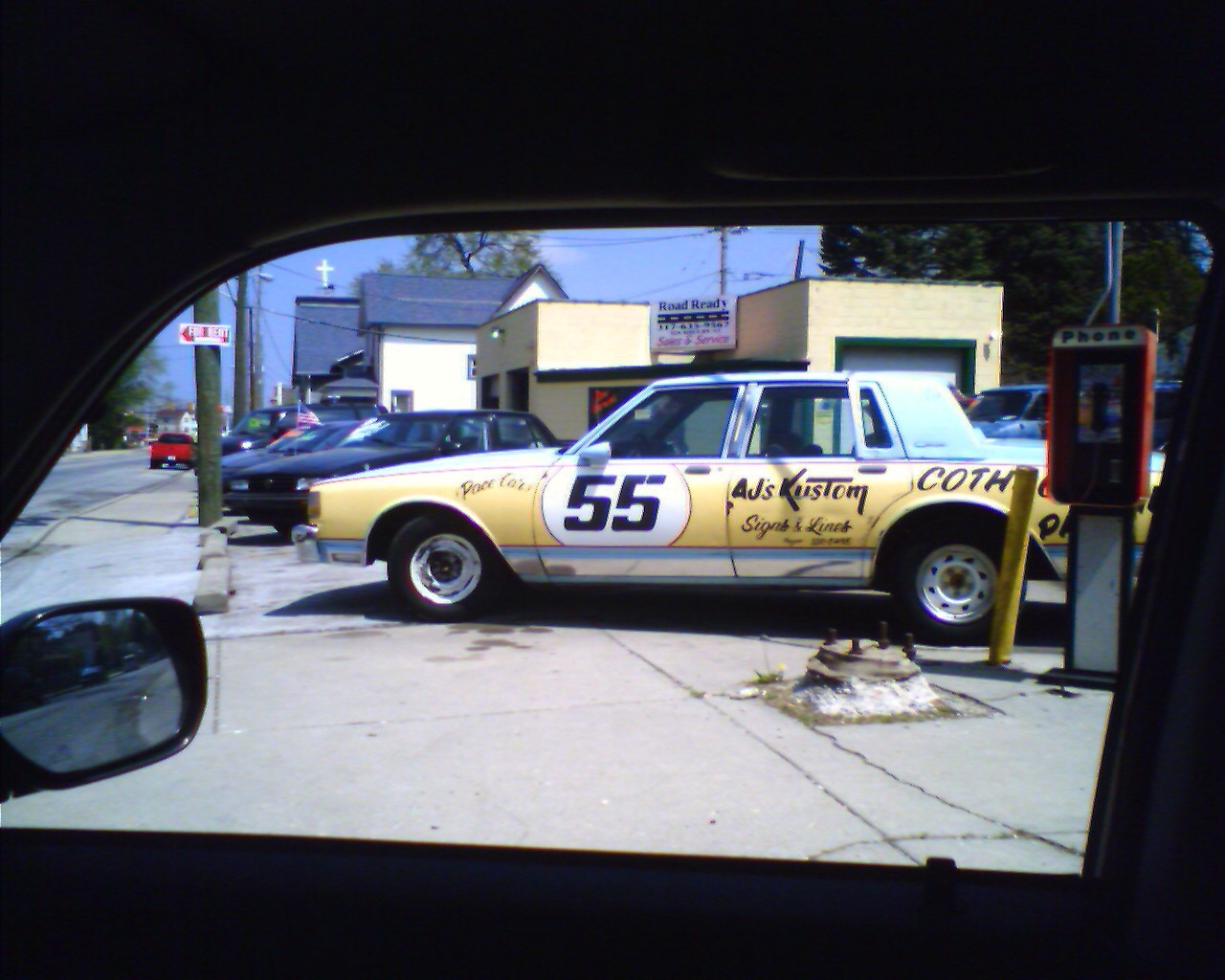
The Dust Bowl was an empty lot in the Crispus Attucks neighborhood where Oscar Robertson, one of the greatest basketball players of all time, learned to play ball. Playgrounds and ball courts were hard to come by, so kids played on this empty lot in the neighborhood. They had played so much basketball, the dirt was hard as cement. At three in the afternoon after school let out, you’d see this big cloud of dust rise from the lot.
I always wanted to know where the Dust Bowl really was. It’s upscale student housing now.
We should put up signs in places like the Dust Bowl that read, “Something important happened here.” A way to help us remember what we’ll forget, at least for a little while longer.
Our house on Pleasant Street used to be flanked by empty lots.
One year I cooked a Christmas goose and we couldn’t eat it all, so I took the carcass and put it in the empty lot and we watched the stray Fountain Square dogs flock around it and tear it apart in the snow.
Now there are two homes where those empty lots where. On the east side is someone our kids call Uncle. On the west side of our home is artist Kyle Ragsdale and his wife. He painted a picture of our daughters on our porch, with women walking behind them carrying parasols, looking like a parade of Mary Poppins. It hangs in our dining room and Kyle is one of our dearest friends, and having he and his wife and our other friend so close to us is way better than watching dogs consume a dead bird.
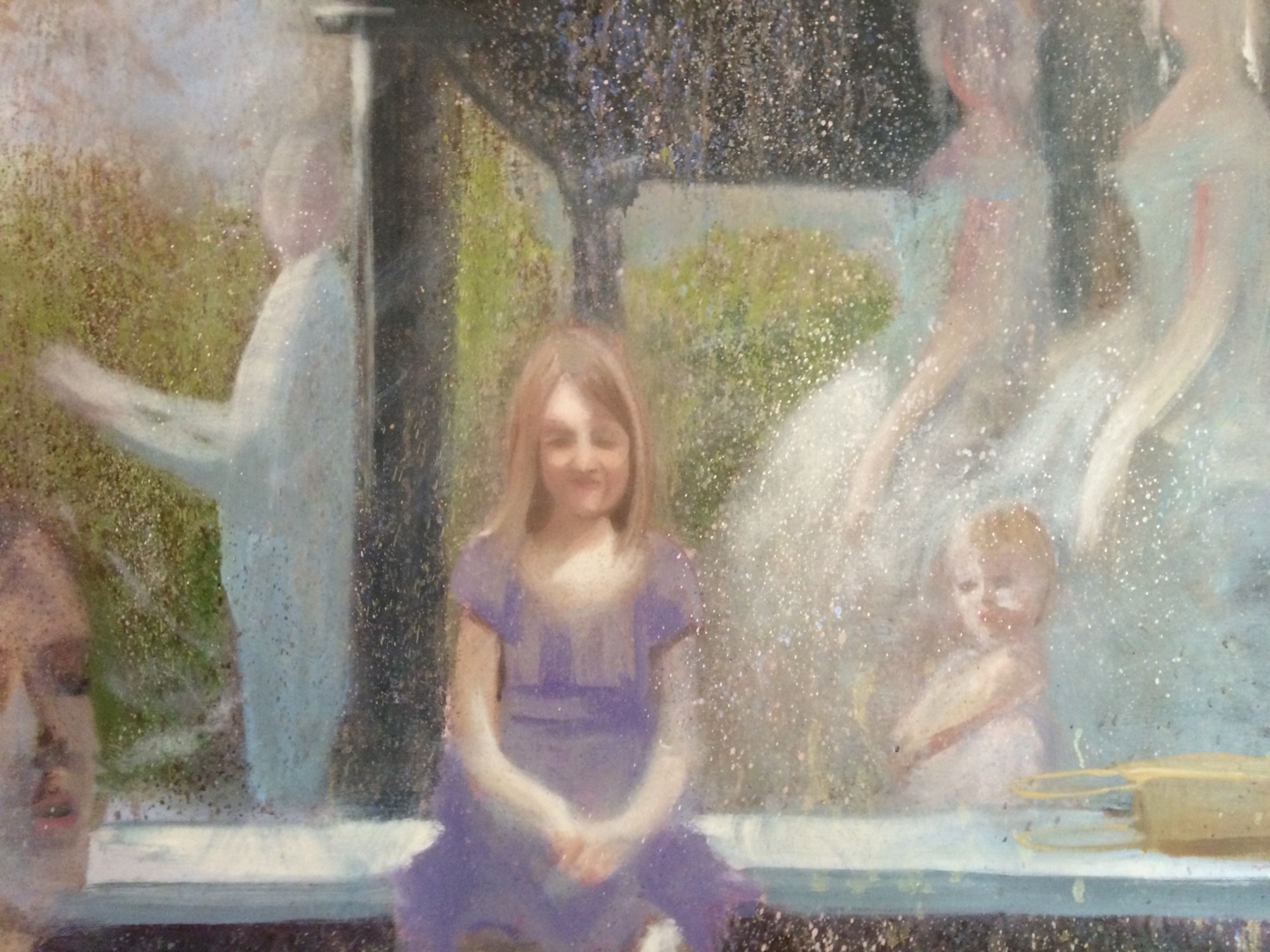
Our first house in Indianapolis was up in Lafayette Square. We lived off of Girls School Road, and when we mentioned that to another couple they whewed a sigh of relief. “At least it’s not Lafayette Square.” They thought we lived further north.
We loved living up there. One of the best thrift stores in the world was nearby. I used to walk to a comic book store once a week (it’s now a supermercado). And there was this Indian place that served chaat late at night. The spice from the soup would burn my insides but it tasted so good. The same spot has been through three Indian restaurants since then.
There’s so much turnover in Lafayette Square. You can never count on a restaurant being there the second time, but when it is, you’re thankful.
Our first house here had a thick, classic suburban lawn. Within the first days of the spring, the lawn would explode in green. Tonya and I would sit in the kitchen eating dinner and and watching the rabbits poke through the yard, nibbling clover.
One afternoon while Tonya was at work, I was mowing and not paying attention and I ran over a hovel of rabbits. Their blood made the green grass red.
After that I tried to pay someone to mow the lawn. Though it had nothing to do with the rabbits, we moved a little while later.
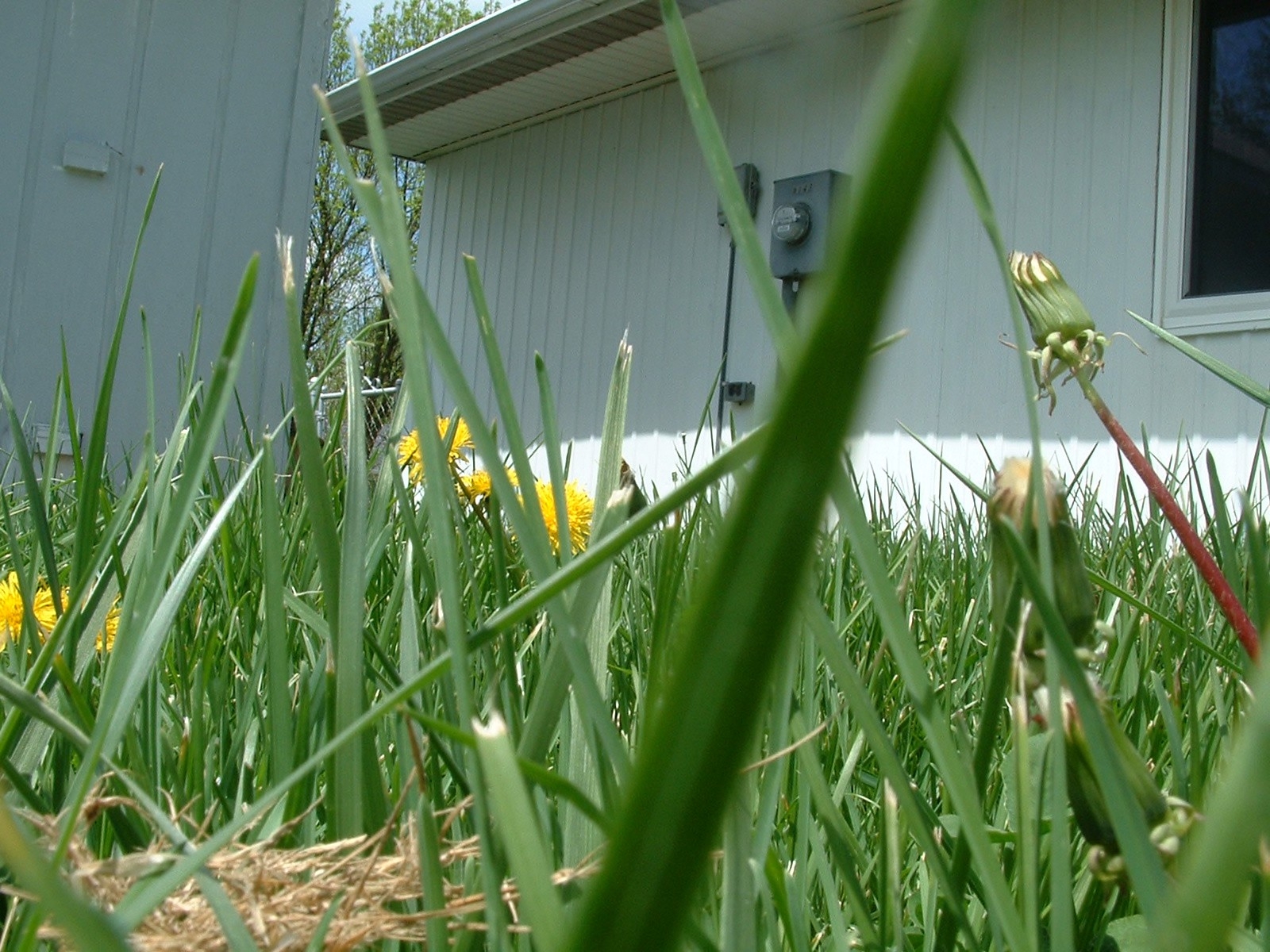
During the recession, when a few of us on Pleasant Street thought the economy might tank and we’d all lose our jobs and have to fend for ourselves, we talked about digging an underground tunnel connecting our houses via our basements. It was a joke, but also kind of not.
I’ve written 84 pages of my thesis on the Circle but I haven’t finished my thesis. I don’t have a master’s degree in US History, which was why I came here in the first place.
It’s not that I need an M.A. in US History, or that it’d help me do anything. Academia is a disaster right now.
It’s just that I feel like a failure without it. I’m afraid to even check in with anyone at the school because I’m sure I’ll have to re-certify classes. It’s been so long.
My thesis reminds me that I’m not good at finishing. I try not to think about my thesis. It’s been what it is for so long, it’s a symbol, itself a monument to my unfinishedness.
I feel a need to prove something, to someone, but I don’t know what, or to whom.
I chose the Circle as the subject for my thesis because it was 2004, and 9/11 memorial fever was at its peak, and I saw someone put a Pepsi cup on the Monument at the Circle, and I wondered how long does it take to forget what we once wanted to remember?
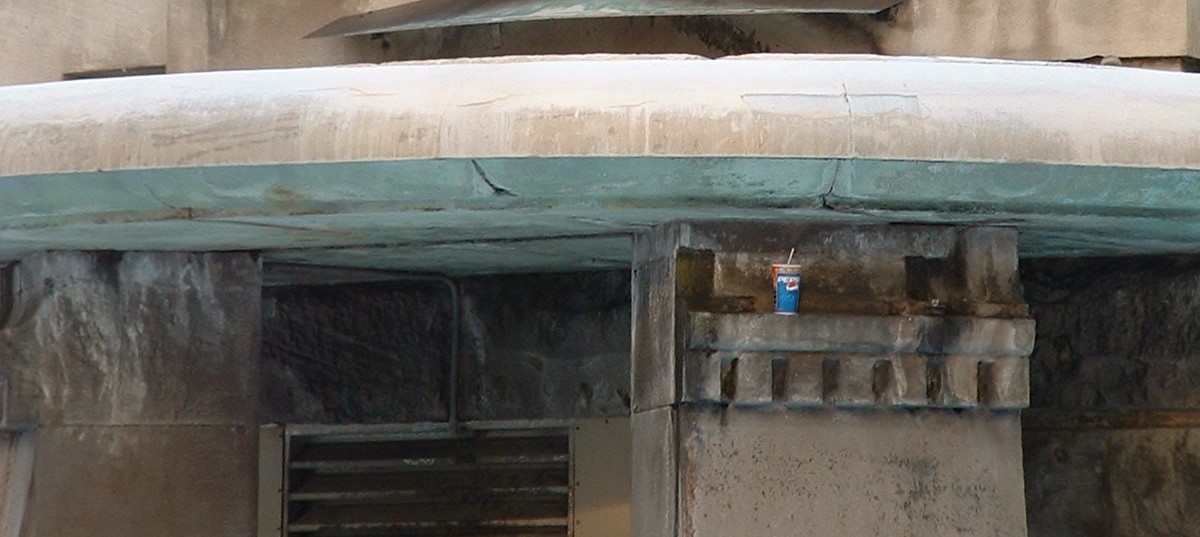
Tonya and I moved into a duplex on Fletcher Ave in 2004.
One day, not long after we moved in, we received a big, battered shipping box, sent to, or from, the house’s previous occupant, a guy named Alex. There were stamps all over the box, from country after country handing it off. It’d traveled around the world and here it was, having finally found its destination. Or its way back home.
The box sat on our couch for weeks. A pre-facebook 2004 internet wasn’t much help in finding Alex. Finally we opened it, feeling like we’d put in due diligence. Inside was a rain suit, an expensive high-end full-body rain suit. No letter. No receipt. No note. Just a rain suit. Mystery not solved.
Like the box, the rain suit sat on our our coach. We didn’t know what we could do with a rain suit, and we felt even less ownership of it now that it wasn’t just a random box. This had meant something, to someone. But we finally gave the rain suit to Tyler Henderson, who’d just started messing around with farming, and that seemed to be the end of it.
But a few weeks later Tonya was sitting on the porch, talking with one of the guys from the other side of the duplex. She remembered to ask about the rain suit, and about Alex. The neighbor laughed out loud, and told a story.
One night he was sitting on the porch. Alex was having a huge party, which wasn’t uncommon, and a guy walked out of Alex’s house in a spacey daze. Music thumped behind him as he closed the front door. He was shaking his head.
“I’m into a lot of stuff,” this guy told our later-neighbor, “but I cannot do rain gear.”
I was a stay-at-home dad for five years, while Tonya worked downtown at the Key Bank building. Our daughter Cosi and I would leave our rented duplex on Fletcher and drive the short way downtown to meet with Tonya for lunch. Tonya and I would share a sandwich while she breastfed Cosi. It was a good arrangement. I miss those meetings. It forced space and time on us at a time when we had neither.
One day I’m parked in front of the Key Bank Building on West Market, waiting for Tonya to come downstairs, and someone knocks on my window. It’s a UPS guy, and he motions for me to roll down my window. I do, maybe I’m blocking a loading zone. I start to apologize. He stops me.
“I know you,” he says, and he proceeds to recount my home address, which freaks me out a little. “I recognized your minivan. I used to rent your house.” Ah, I smile back. I mention the rain gear meant for Alex, like it’s a shared inside joke we have.
UPS guy smiles a slight smile, and explains: he’d lived in that house because he was Alex’s boyfriend. And yes, Alex did have crazy parties with rain gear, because Alex was crazy, but he was also crazy brilliant. Alex was an artist. And though I’ve never seen Alex, I can see this couple working as a couple in my head; Alex the loud crazy rain-gear one, and this UPS guy the sane, reasonable one.
UPS guy tells me that Alex was always painting something. He even painted murals on all the walls of every room in the house. His house, my house, where I live, my walls.
I ask where Alex is now, and if he wants his rain gear back, but the second I ask, I regret it, and I realize UPS guy has been talking about Alex in the past tense.
He looks down Market Street and past the Monument. His words slow, stuttered, delicate. I can barely hear him for the traffic. Alex is dead. I don’t dare ask how. He says after Alex died, it fell to him to paint over all the murals in the house.
And then we moved in, unbeknownst, days after.
Fuck me.
“Anyway,” UPS Guy says, patting my car door like a pillow, or a baby’s head, “I just wanted you to know. Know that Alex was amazing.”
I don’t say anything, I don’t think I’m expected to, and he walks back to his brown delivery truck and drives off. But when I go home after lunch and get Cosi down for a nap, I walk downstairs and I sit in the living room. It’s quiet, only the white noise of the baby monitor. I stare at the cream colored walls and try to see something through the cheap paint. I look outside and expect to see a UPS truck driving by.
I think about Alex, dead, his work and life and art and sex around me like a blanket, like a ghost, and I am discomforted. I am discomforted by my discomfort.
Is Alex haunting me, here in this moment as the dust passes through the piano window’s sunbeam?
Maybe that’s what the suburbs were for: getting away from the ghosts.
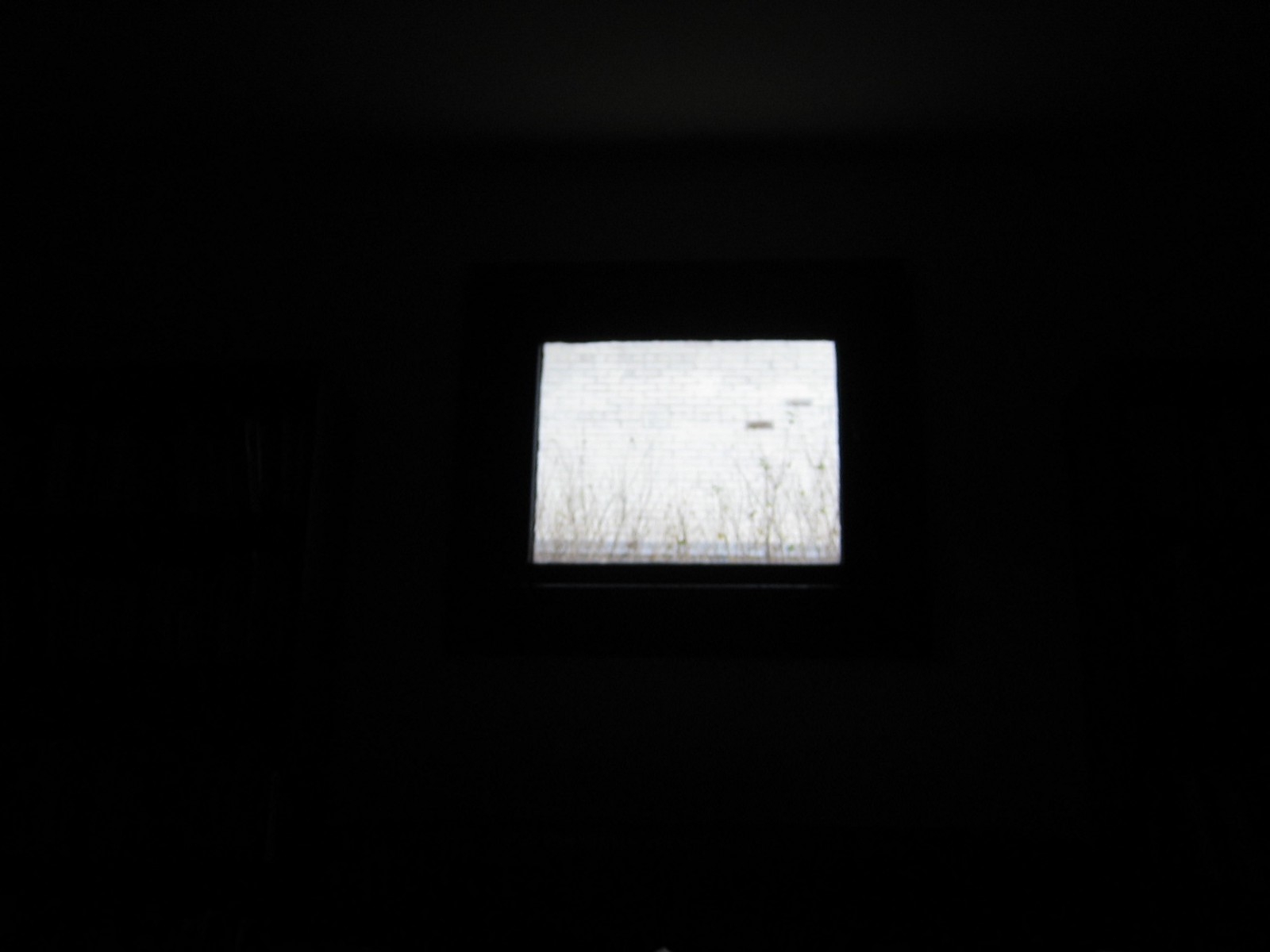
There’s a certain gravity to downtown Indianapolis. As a guy who’s written at least 84 pages about the Circle, I’d suggest the gravity comes from the Circle. Back at the start of the city, the Circle was the Governor’s House, but the Governor’s wife didn’t want the city seeing her dirty laundry, so they abandoned it, and for a while it became a convenient location for whoring and letting your horse take a shit on the way through town.
William English, an Indianapolis businessman in the late 19th century, was the driving force behind getting the Monument built. His impetus for compelling the city and state to build the Monument was Hoosier pride, with a healthy dose of entrepreneurship; the Monument would bring tourists to his hotel and opera house which was across the street.
Fifty years later on V-J Day when Truman announced that the Japanese had surrendered, thousands of people converged on the Circle. The Federal Government had just lifted the liquor ban so people were drunk, maybe for the first time in years. Red Cross ambulances circled the Circle all night, patching up peoples’ feet, giving them boots so they wouldn’t cut their feet on broken glass, and then tossing them back out into the craziness. I can’t prove it but I bet people were having sex in the fountain of the Monument. The pictures in the newspapers look like the front page of perezhilton.com.
Something like that will never happen again. We’d just post about it on Facebook I guess. We hear about everything in our living rooms, on the toilet.
There are no black people in the photos of the Circle. I’m guessing they were at Indiana Avenue. Let me know if you know, if you were there.
If Indianapolis was reading this and I could make it do one thing, like how William English made Indianapolis build a Monument, or Robert Kennedy “talked” black people into not rioting, I’d ask the city to fix the whole race thing.
Not fix it fix it. Just. Try. To fix it.
I realize that’s a crazy ask. And I know we are trying to fix it. I guess. It’s all connected right; you can’t fix 600 years of national racism. It’s such a big problem, and while I can’t even begin to understand it, I do understand that I don’t understand it. I want to start somewhere. I’ve been in a lot of discussions about a lot of other ways to improve Indianapolis. Race gets sidelined. Because it’s hard? Because someone else is trying? I don’t know why.
I’m a white guy, and I can’t speak like Robert Kennedy, and I’m moving away as a luxury for a better job, not because it’s a necessity, or because I have to. I have the privilege of choice. What I can do about this? The only answer is nothing.
Which is kind of what we all do. Waterways, breweries, cultural trails, electric car shares; these are all good things. It just feels so small, feels like nothing, especially when I see that Indianapolis, like every other American city in the 21st century, has so much else wrong with it besides a lack of good beer or coffee.
It’s like we are painting over walls, hiding what’s underneath.
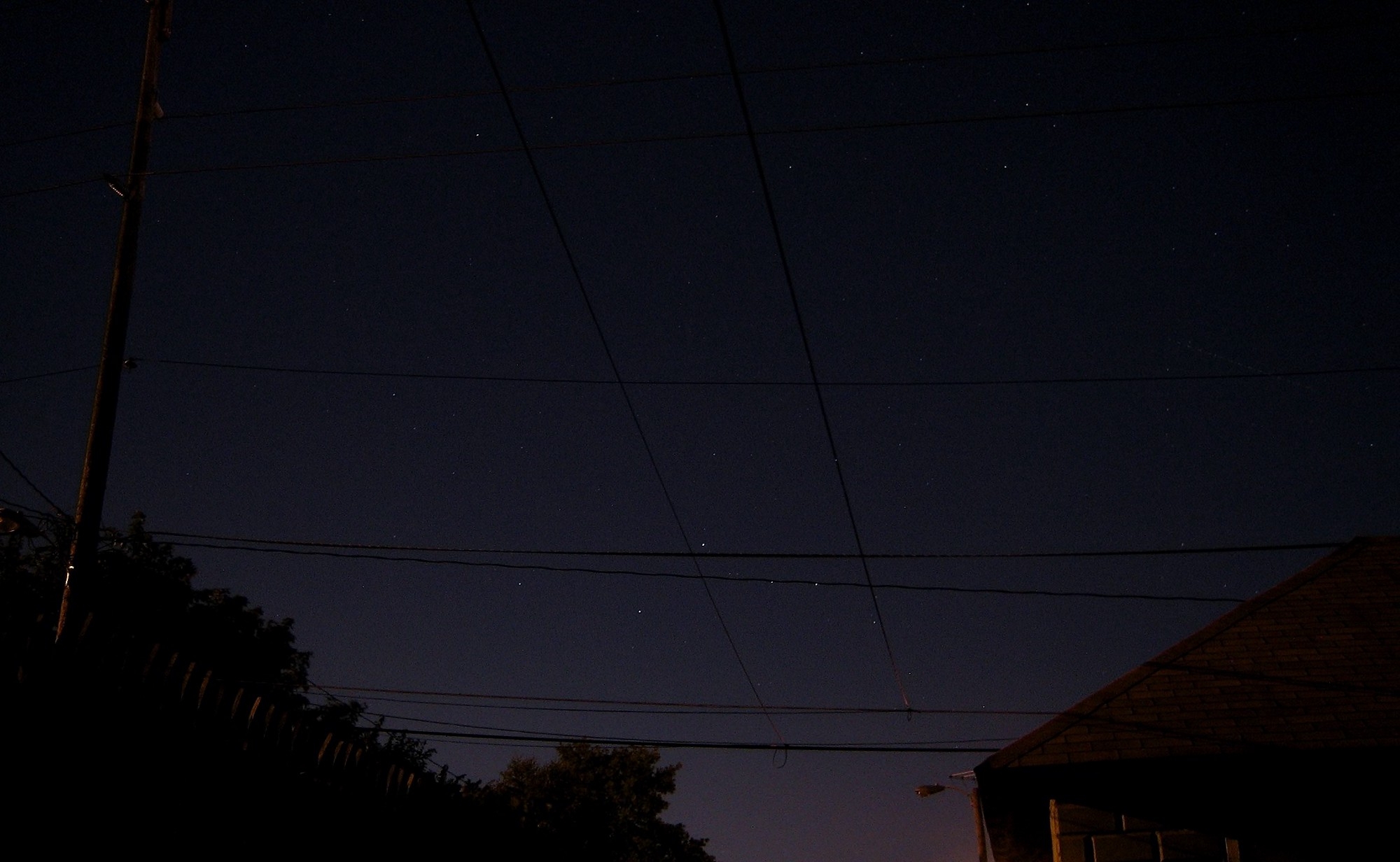
Six years ago Winni, our second daughter, almost died in Indianapolis. She had Waugh’s Syndrome, a rare combination of two common intestinal genetic disorders.
She was in the PICU at St. Vincent, a hospital on the north side. The drive from Pleasant Street to Michigan became a daily ritual; Crown Hill Cemetery on the east side, and the Bike Clinic and Dairy Queen on the west (16 dilly bars for the price of 10!).
So many others from our church, our family, and our neighborhood made that drive too.
Though we felt alone, we never were.
When we brought Winni home two long weeks later, our neighbors on Pleasant welcomed us like heroes. Over a dozen people were repairing our broken little wooden shed in the back, where I used to find discarded needles and broken vodka bottles.
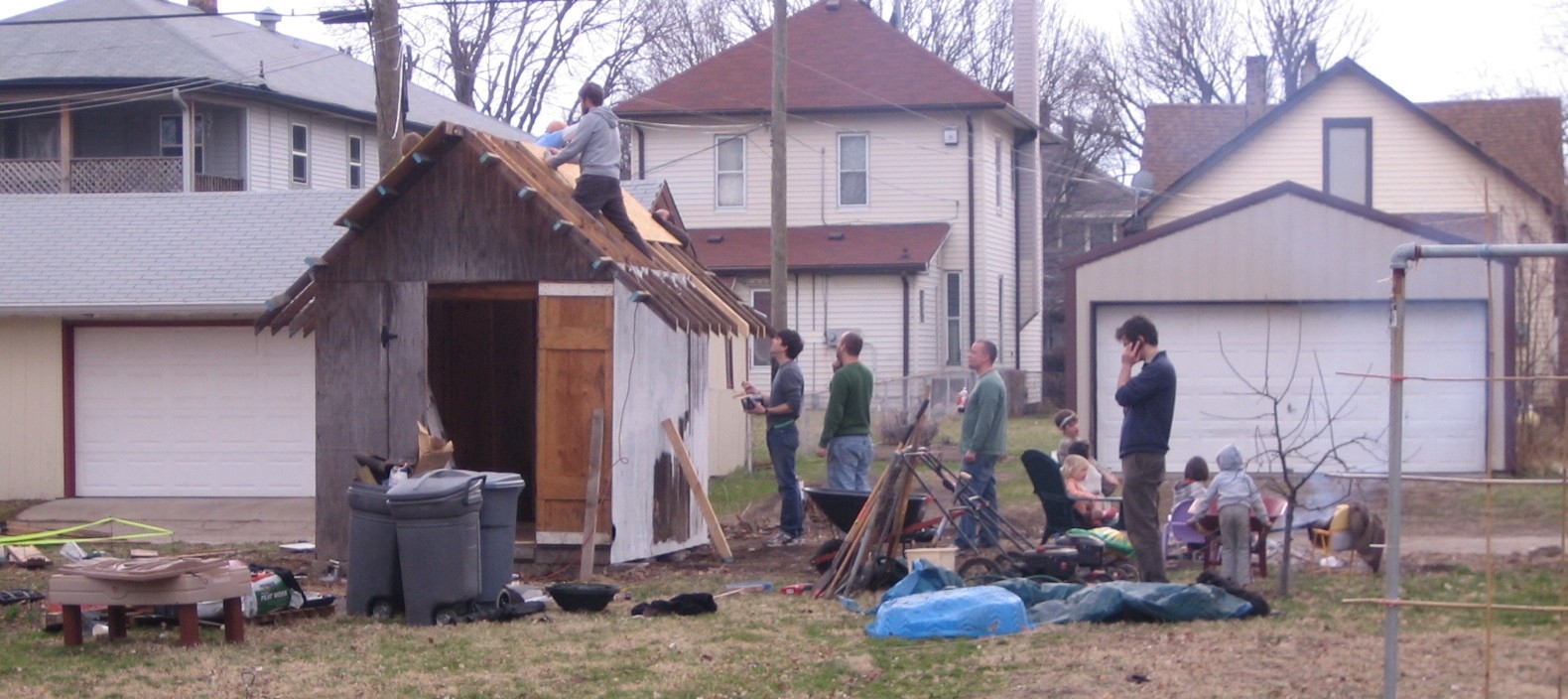
When I say I’m a little more found, what I mean is that I found Pleasant Street.
Pleasant Street is what the suburbs were based on. Kids run up and down the sidewalks after school, through sprinklers in the front lawn on Saturday afternoons. The sound of their laughs rising from the backyards like pop fizz. The buzz of early morning lawn mowers. And after dark, the bats start to swoop from house to house, the lull of conversation ebs from porches into the street like soft waves up a beach, a laugh now and then punctuating the night air.
I’ve heard that other, older parts of Fountain Square call our street the Gay Block. We do have several gay folks on street: Bill and Bill have lived here longer than anyone I know, and there’s this lesbian couple with a huge jeep.
A long time ago I’d see this black cross-dressing kid walking up and down the street, and I wondered if things were easy for them in Fountain Square, or not. I haven’t seen them in a while.
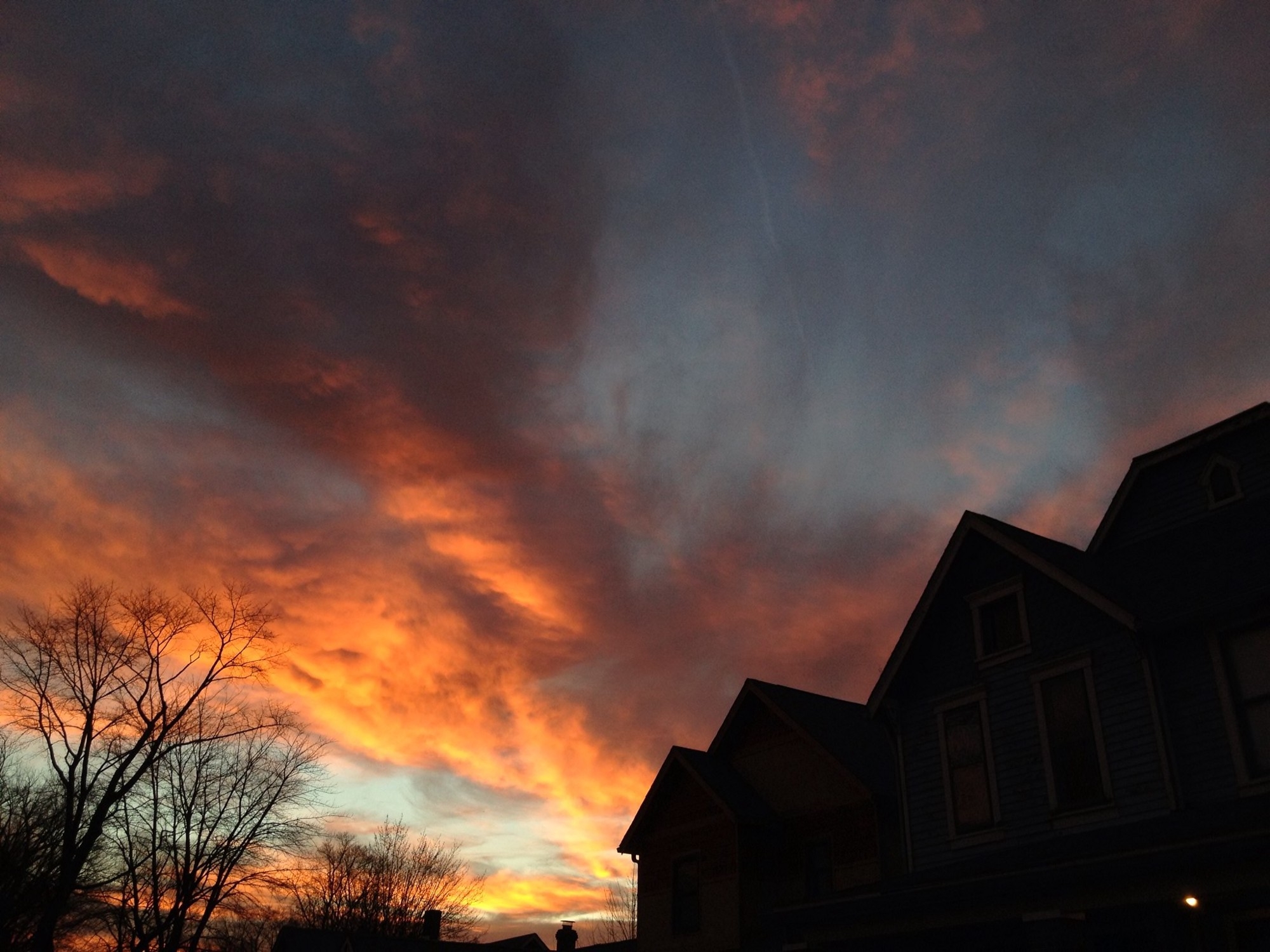
I have a friend who is an architect. He believes in ghosts. A couple years ago we sat down at the Happy Chicken and talked about ghosts. My friend is one of the most reasonable people I know, and he described his encounters with ghosts in as reasonable a way as anyone can.
Down underneath the City Market, which is just east of Monument Circle, there are these catacombs that market venders used for cold storage back in the 19th century. It is a textbook location for ghosts, so my architect friend went looking for them down there.
My friend said that there’s a particular ghost in the catacombs that keeps trying to point people past a particular wall. It’s a newer wall in the foundation line, most likely constructed several years after the original build-out. Turns out the ghost is the ghost of a murdered black man, and the ghost is pointing people into the direction of the murder site, only underground. My friend told the ghost that there was nothing he could do because of the wall. Ghosts don’t pay much attention to details like that.
After that explanation, my friend hasn’t heard from the ghost since.
He has the video posted on YouTube if you want to watch it.
If I’m sitting on my porch at night, I can look east and west and see through my neighbors’ porches. If you’re in the right spot, and it’s a Saturday night and everyone’s porch lights are on, it looks like a tunnel, like we’re all connected.
I was telling a good friend that moving was hard. He told me this: “No condition is permanent.”
I googled it. It’s many things: a West African slogan, the name of a smooth African soul song, the name of a podcast, an academic article about the social dynamics of agrarian change, a self-help book on Amazon (“10 Master Strategies to Move From Fear & Doubt To Action!”).
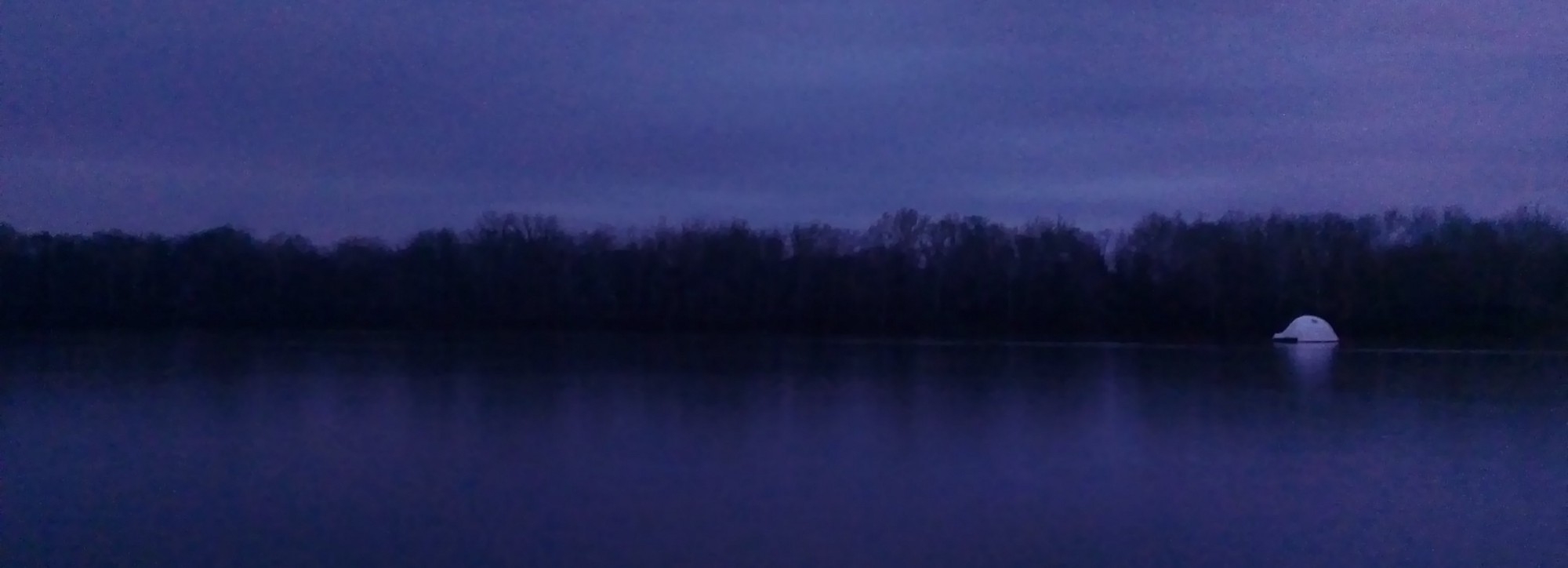
Cities and neighborhoods and streets are on this cycle. At the start it’s mud and sticks. Anything is possible but there are hungry wolves and it’s cold and dark. Some people like the mud and sticks. Most don’t. The next phase is more structured, like, say, Lincoln Logs. You can build things that last a little longer, but it’s still rudimentary. Then maybe the next phase is Lego. Anything is possible as long as you use the bricks. Then it’s Playmobil, remember those? and there’s more structure. Then maybe it’s American Girl dolls and after that it’s in a glass case and don’t you dare open it. And after that? The only thing left is decay, degradation, and deconstruction. Back to the dust.
If everything looks shiny and bright, it’s almost the end.
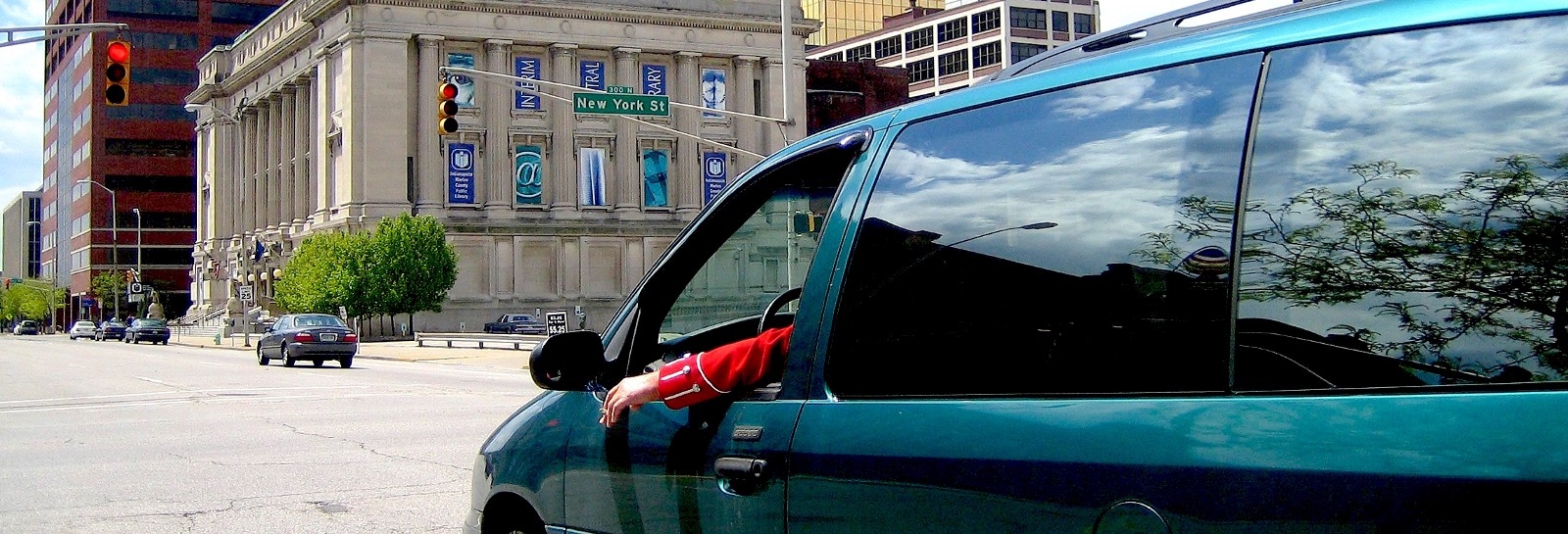
Kevin used to live two doors from us on Pleasant Street with his wife Shelly. Shelly’s parents lived across the street from us. Her dad, in his seventies, wood-worked in his spare time.
Shelly died in her sleep. The neighborhood said it was an overdose.
Kevin used to be outside all the time. On race day he’d turn up his radio as loud as it could go and he’d grill out, the smoke from the bbq lifting up through the overgrown weed trees and hefting into our yard. It smelled good. I always wanted to go over there and join him. I never did.
After Shelly died, Kevin didn’t go outside much.
But one night in the middle of winter, at about 3am, after waking up for no reason, I heard a noise outside the window. It was Kevin, pacing around his house wearing only a t-shirt and boxers in 20 degree weather.
He was talking to himself, to no one, to Shelly’s ghost, to the house.
He had set candles on the fence posts and was photographing the house with this huge digital camera from as many angles as he could.
Two weeks later Kevin was stripping the house of its siding and water pipes. Three weeks later and he and a few friends were hefting the water heater into a truck. Four weeks later he’d moved back to Florida, taking whatever fit in his pick-up and leaving the rest behind. He looked thin, worn, drugged out, spent.
A year later and the Neals had rehabbed the house and moved in. They have a ton of beautiful kids and life spills out of their house into the lawn and onto the sidewalk.
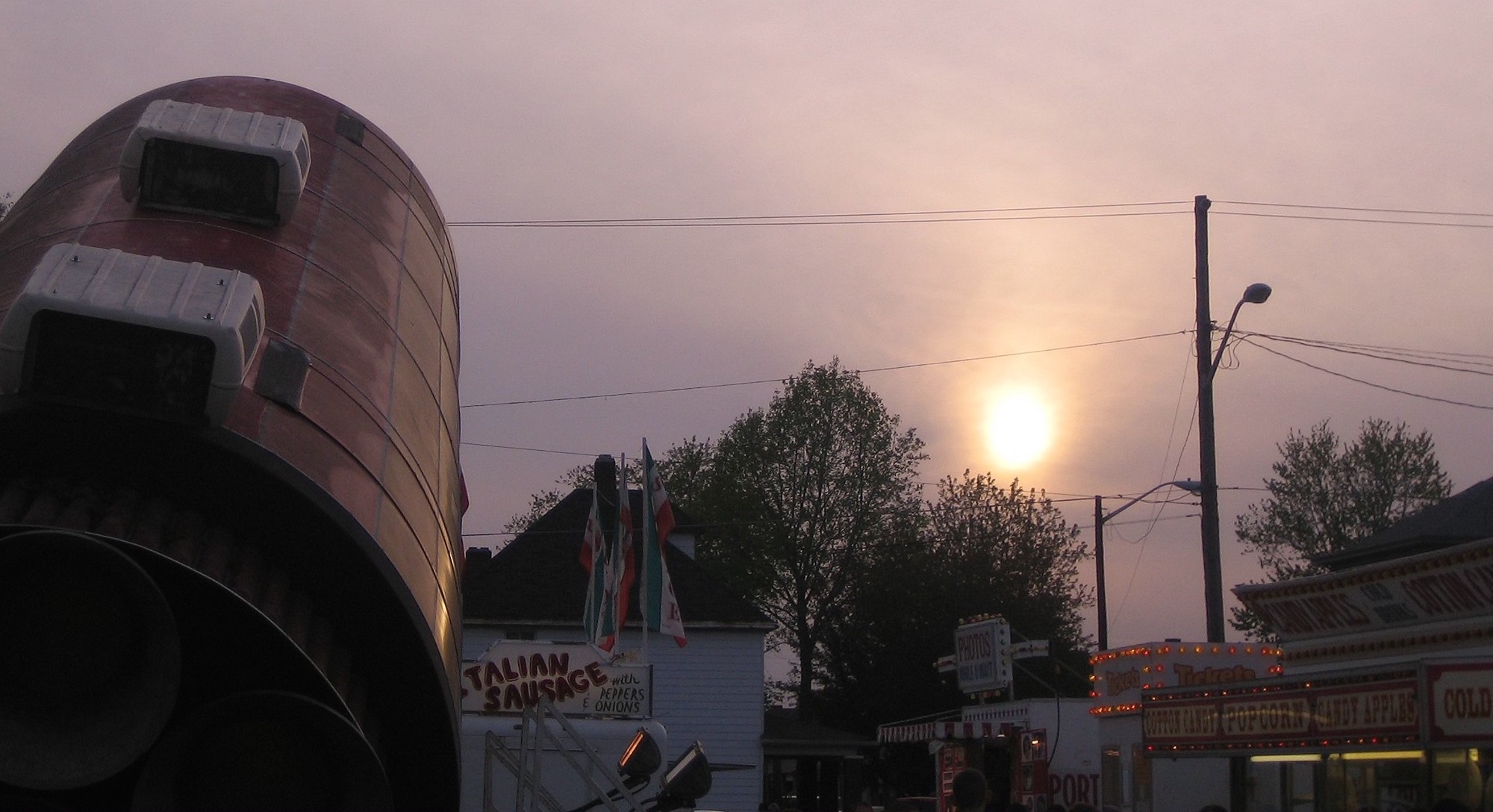
We were looking at homes in the West End of Atlanta with a new friend named Matt. He took us to a beat-up house just down from his. He thought we should rehab the house into a home. To me it looked like someone should set it on fire and walk away.
We must’ve looked like squatters peering into the windows from the porch. Middle-class well-off squatters.
One of the neighbors came out. Matt greeted her, and asked her if she knew anything about the house. She said she didn’t, but then started to ask her own question with a sense of immediacy. “Did you know, did you know” and then she grabbed the frame of her own house for support.
She gathered herself. Did we know that her friend, her good friend who lived just down the street, had died? Matt shook his head; he didn’t know, and he was very sorry to hear it.
“Well,” she said. And she dried her eyes and walked back inside.
We’ve been doing this thing in our neighborhood for as long as we’ve been here where we swap Sunday night dinner duties. It is chaotic and crazy and overwhelming, but vibrant and alive.
Over the years we’ve invited other people to come and join us for dinner. Sometimes we’ve invited politicians, and in 2007 Tonya invited the two mayoral candidates to our dinners. Mayor Peterson couldn’t make it. Greg Ballard could, which didn’t surprise any of us really, because he was so far behind in the polls.
I didn’t expect to like Greg Ballard. He sat on our couch for three hours, never eating, never getting up, an odd constant center in a tornado of sprinting children and spilled plates and long food lines and loud discussions.
I couldn’t help but like him.
We threw a lot at him. Budgets, education, transit, bikelanes, all the usual boring stuff. He handled all the questions with ease, though finesse is hardly what it was. More like awkward steadiness.
And I guess I voted for him because he sat down and ate dinner with us (and by eating dinner I mean he sat on the couch), which is more than we could say for the other guy. Some politicians might prefer to win on their savvy or or charisma or platform. I bet Mayor Ballard would be proud to know he earned my vote by being with us at our dinner.
When that whole Religious Freedom Restoration Act thing blew through town, Mayor Ballard showed another side of himself, one I didn’t see on that couch at our dinner. He was livid as he reprimanded his Republican colleagues, like a father who’d caught some common schmoe trying to feel up his daughter.
His fiery speech had nothing to do with ghosts, but it made me think of ghosts anyway because Mayor Ballard gave the speech just outside the City County Building, right across from the City Market, feet away from the catacombs underneath. I thought of my architect friend’s black ghost. I thought of the ghost of Alex.
I think of all these ghosts here, watching, maybe waiting for something.
And then I think, “My ghost won’t be here.”
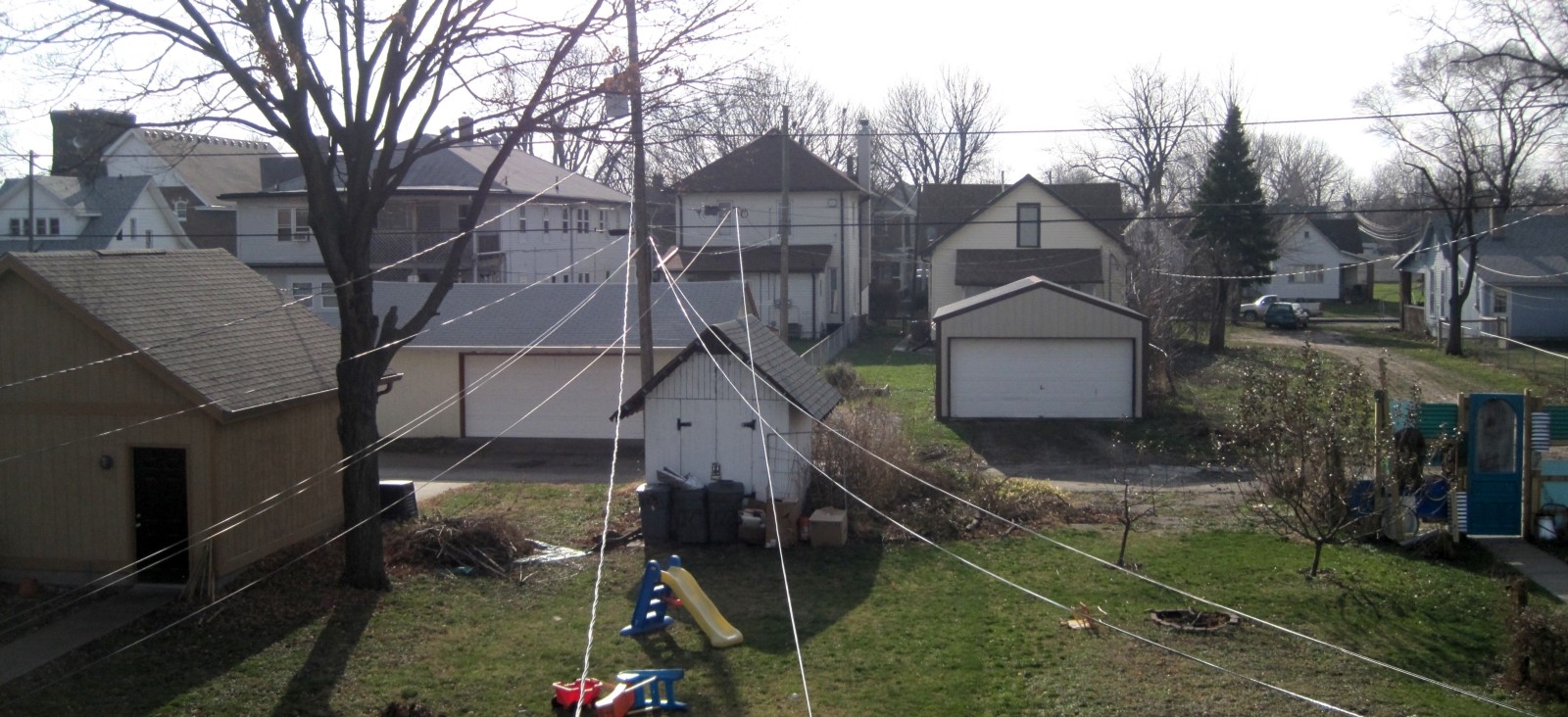
The only streetlight on our block of Pleasant is across from us, right next to a tree. In the spring, the amber streetlight fills our porch like headlights shining into a dark garage.
But at the end of summer, when the tree has grown so much it surrounds the streetlight, the only light on our porch is what we bring to it.
Someone is building a house on East Street next to where Matthew Theobald died.
I haven’t thought about Matthew in a long time. We weren’t close, somewhere between acquaintance and friend. We’d hang out every once in a while. I knew him because I put on this speaking event thing called Pecha Kucha, and he’d want to speak at all of them. He was always awkward and goofy, but so passionate and sincere. He wanted to build a “cybrary,” a vast internet library that would collect and archive and save all knowledge in the world, and then draw connections between everything. At least, I think that’s what he wanted to do; none of us understood his ideas.
The last time I saw Matthew was late on Saturday June 12th, 2010. Tonya and I were driving up to the hospital, where she’d deliver our third daughter, Jane, into the world. We saw Matthew biking, as he always was, and we pulled up, and after we told him what we were doing, he flashed us a big smile and a wave and a good luck. He was so excited for us, for new life.
Two nights later he was gone. He’d done or taken something, and jumped off his second story porch.
Every once in a while I get a weird ping from Facebook, from an old event that Matthew Theobald set up years ago, or a leftover calendar reminder that it’s his birthday. Maybe Matthew’s ghost isn’t at his house. Maybe it’s floating out there on the web, saving everything, connecting everything.
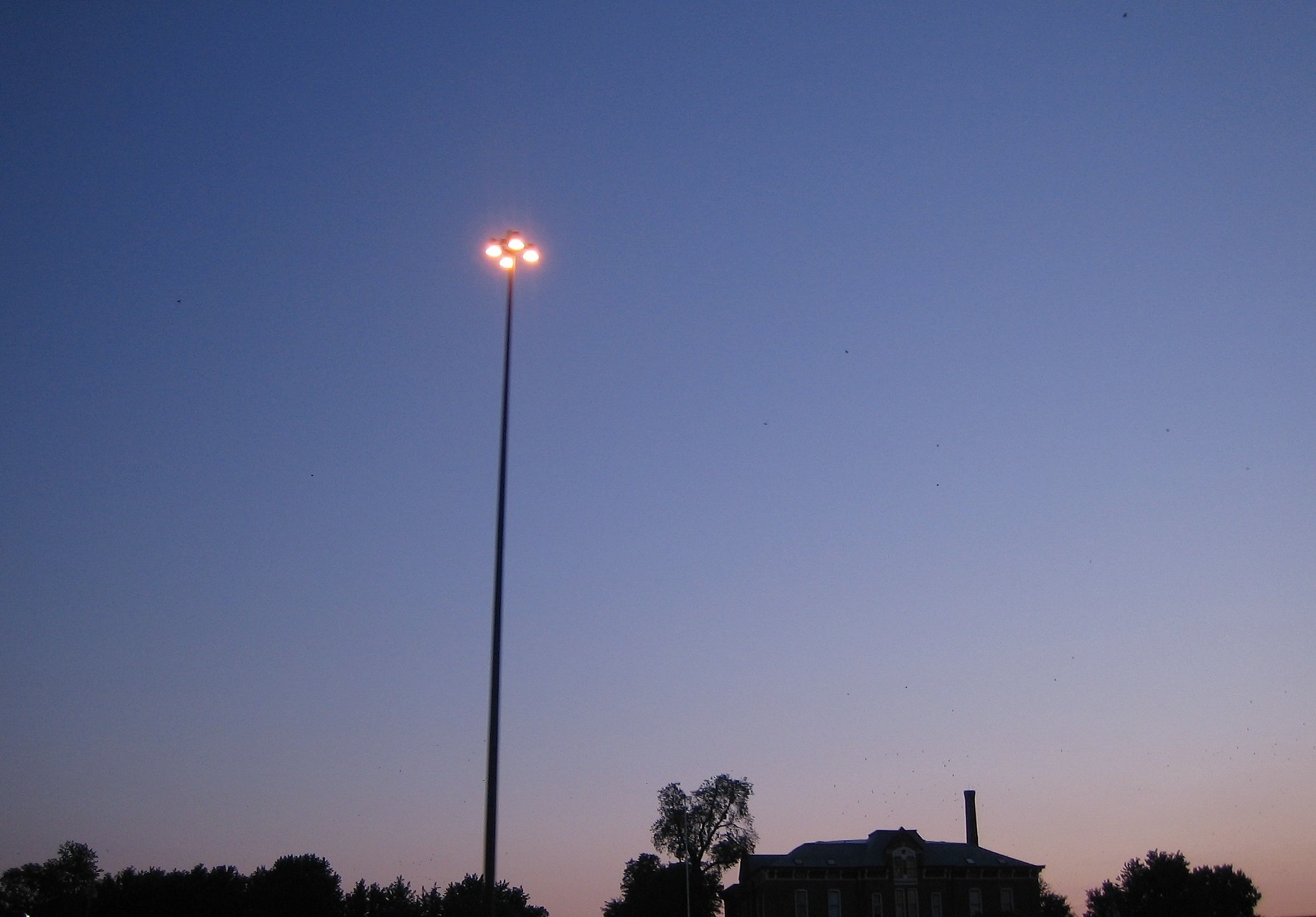
No condition is permanent.
Leaving is a change of condition. Death is the biggest kind of leaving you can do. And if that’s true, then leaving is a kind of small death. And if leaving is a lesser form of death, will there be some lesser ghost version of me, still here? In this city? Like Alex, or Matthew, or the murdered black man? Only, not dead? Just, left?
If so, my ghost will be easy to find.
Go south on East Street, past Matthew’s house, then southeast from downtown on Fletcher Avenue. Pass by our old house, where Alex lived and died, and where you could see the fireworks from our backyard, right by our weird neighbor who had hundreds of cats, and the other neighbor who’d resale pallets. Turn right at the Dairy Queen and the old darts bar, and then left on Pleasant. Keep driving, slow, until you hear children laughing as they play in the oil and water puddles after a heavy rain, and neighbors calling out from their porches, going in and out of each other’s houses, screen doors clapping against the door frames. Look close enough, into the living rooms, and you might see neighbors cradled in each others arms, holding each other, because pain always finds us and Pleasant Street is respite from many things but not from pain. Stop when you see all that, and on the right you’ll see a big, blue double.
There might still be the tiny tree we planted in the front yard, thinking we’d watch it grow into something taller than our house.
Look for my ghost, vapid and opaque and tangential as it will be, barely even a ghost, up on the porch of that big blue house on Pleasant Street, holding on to something it can’t remember, unfinished, a little lost and a little found, waiting, waiting for that little tree to grow, waiting for the kids to grow up and come home from college late one Friday night, waiting until the kids come back one last time because everyone has grown old and died in their beds; my ghost will be in the amber streetlight in the spring, in the hot dark of summer when the neighbor’s tree has overcome the light; it’ll be there for as long as it can, waiting and wishing and wanting to be there forever.
